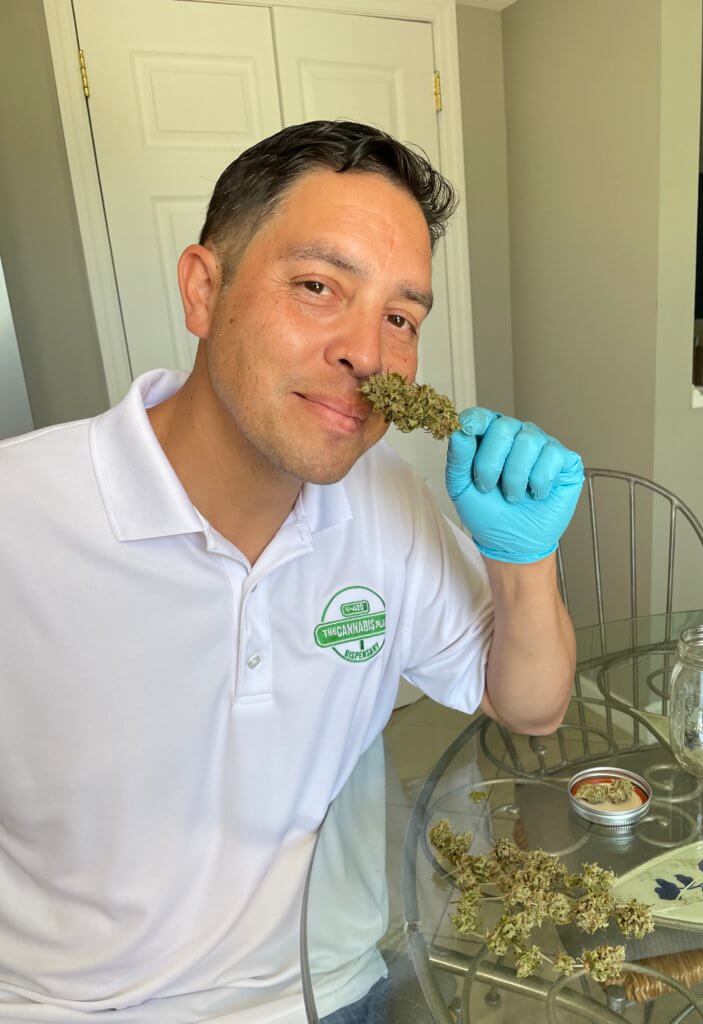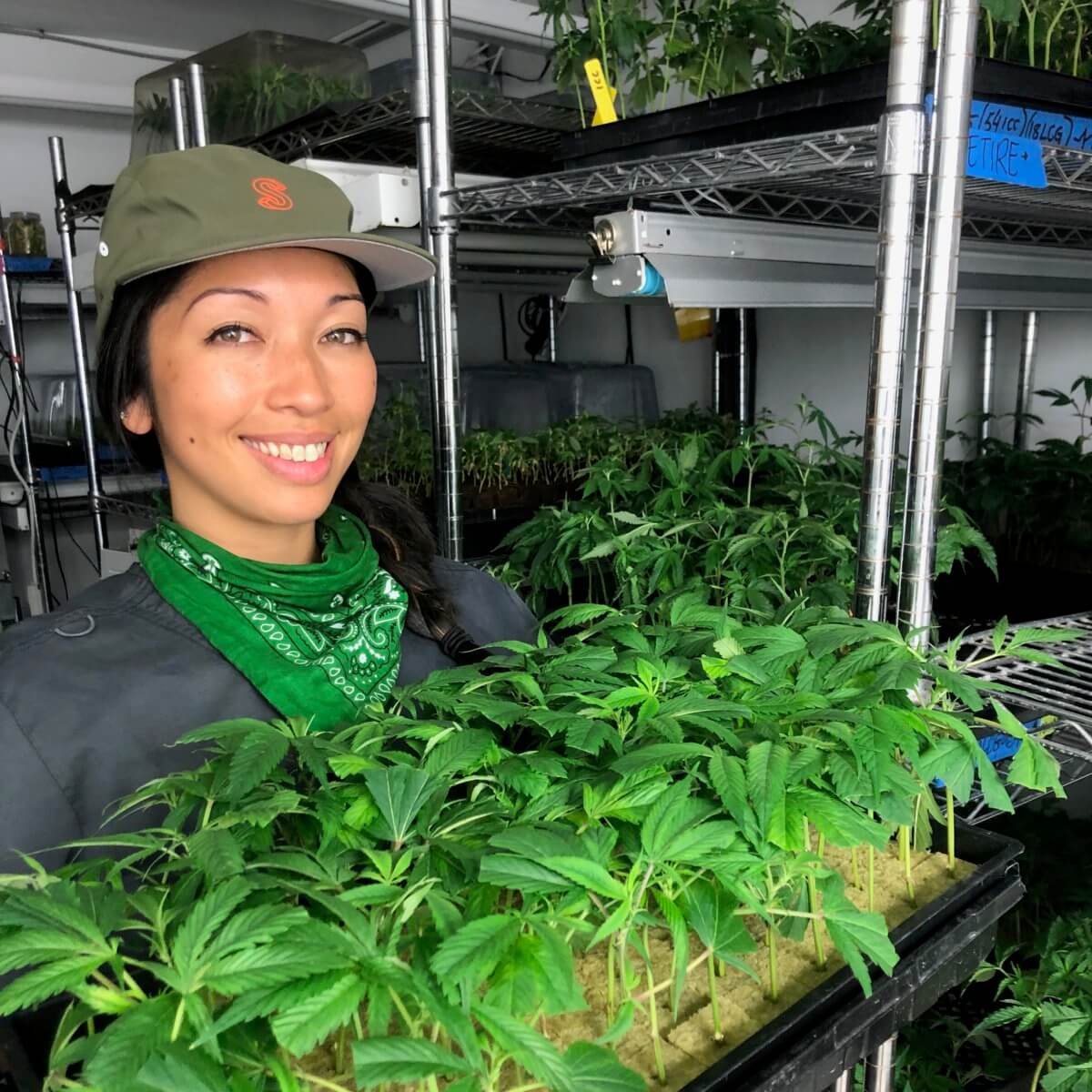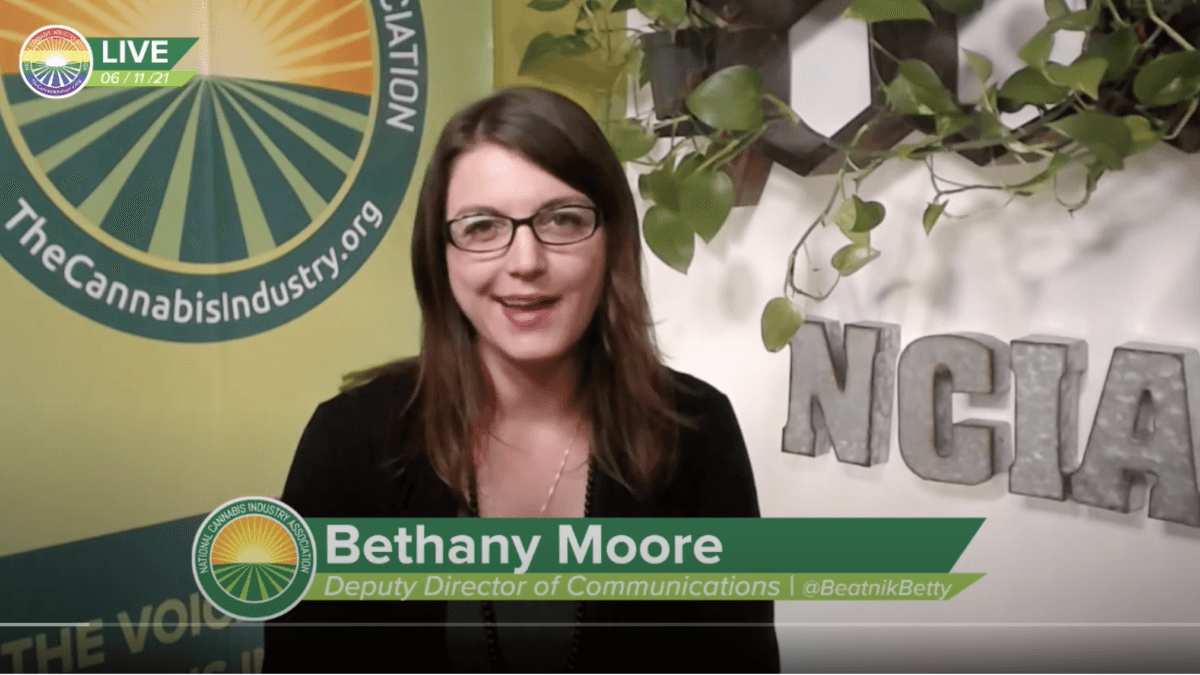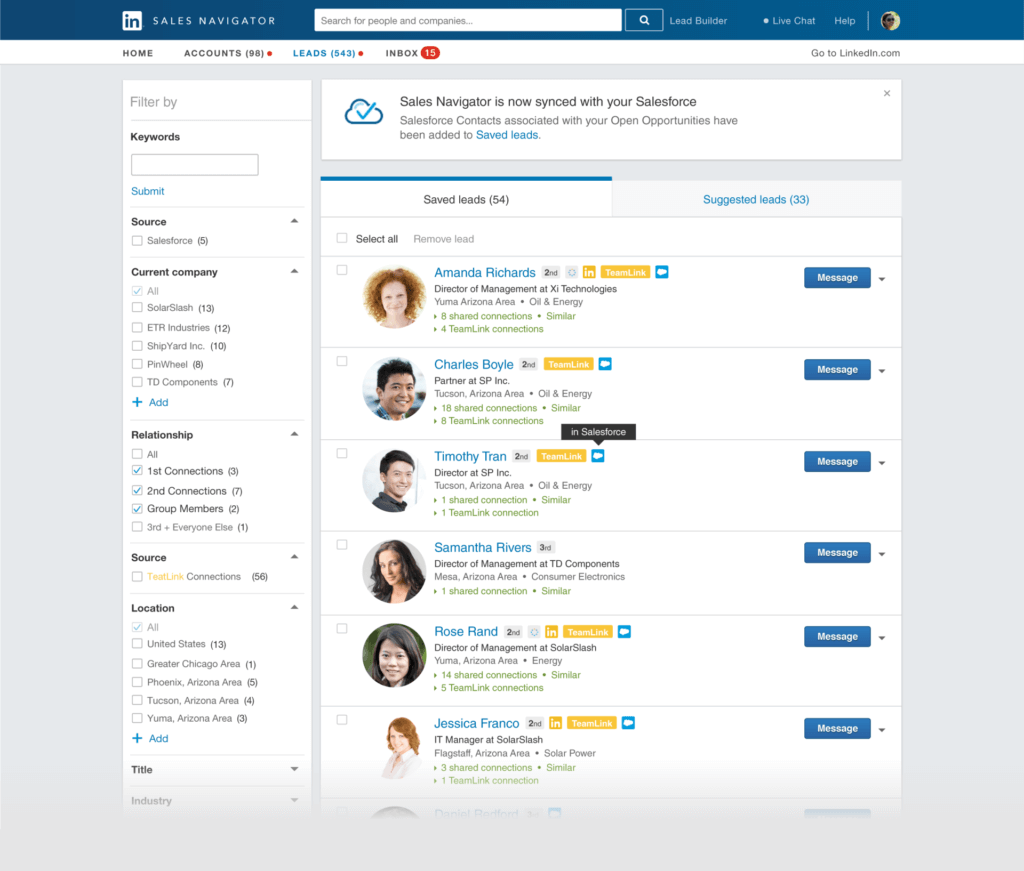Member Blog: 7 Practical Marketing Tips for Navigating Unchartered Waters

Now is the time to maximize brand value on things that don’t cost extra.
By Tara Coomans, CEO of Avaans Media
Member of NCIA’s Marketing and Advertising Committee
You may look at these 6 cannabis PR ideas and wonder what they have to do with PR, but your reputation is holistic and dynamic, and these PR tips add up to big value.
2022 has been a mixed bag for the cannabis industry. If you are feeling the pinch then you’re probably looking for ways to increase revenue without incurring considerable extra costs.
Corrections are quite literally a matter of time – it’s just part of capitalism. But with every correction comes a recovery and THAT’S what you should be planning for right now. It might seem difficult to plan for that day, but now is the time – especially since your competitors are probably cutting marketing budgets, if you maintain yours and mix in these ideas, you’ll be exceptionally well positioned for the happier days ahead.
Here’s some good news, see how the experts are bullish.
MJ Biz projects the cannabis industry’s impact will still be near $100 billion by 2022, and nearly $158 billion by 2026.
According to Viridian Capital Advisors, a financial and strategic advisory firm for the cannabis market, investors are encouraged to invest in cannabis stocks now, because they forecast a 2023 & 2024 with a 25% increase in revenues for the cannabis sector, with flat margins. More good news U.S. cannabis stocks with trade at EV/EBITDA multiples of 5.7x (a 60% increase over 2022) for 2023 and 4.6x (a 50% increase over 2022)for 2024.
If you’re a smaller brand, keep at it, Viridian says MSOs will continue to lose share to small operators in 2022.
According to Gallup, the percentage of U.S. adults who say they have tried marijuana is sitting at 49%, the highest measurement to date.
These projections show some pretty impressive growth – so don’t act too rashly yet. But, you should absolutely consider adding these tips to your planning so you can excel during this time and maximize brand value. Frankly, you should do these things in the best of times too, because they’re fruitful and evergreen ideas.
Double Down On Relationships
“People will forget what you said, people will forget what you did, but people will never forget how you made them feel.” -Maya Angelou
Join and Participate in Active Industry Associations
Right now, we need to commit to the industry associations that are actively working to improve and defend our industry on the local level and the national level. When you join, ask how you can more actively support the organization. By supporting the organization, you’ll not only strengthen its mission, but you’ll also be able to get to know the people better too. Double down with your time and you’ll find the returns are immeasurable. Take full advantage of the membership benefits, if there are ways to share your point of view, maximize those. As the industry consolidates, people are looking to do work with people they trust and the best way to encourage trust is to be present, take part, show your commitment to the organization, the mission, and the people who are contributing to the industry. At Avaans Media, we’re big fans of the way National Cannabis Industry Association (NCIA) treats its members.
Treat Your Clients & Vendors Like Gold
When was the last time your CEO attempted to make budtenders feel special? Now is a great time. Budtenders, like it or not, are the face of your brand to the consumer and trust me, they feel stressed about the cannabis industry’s challenges too. Why not do something no one else will do for the front line during when things get rough: treat them with respect. Small efforts can go a long, long way right now. I’m not talking about training, I’m talking about thinking of ways to thank budtenders right now, genuinely show your appreciation. It could be as simple as a surprise visit to every dispensary with gift cards. Sure you can go bold and that’s fantastic too, but if you can’t be bold, that’s not an excuse to do nothing. Everyone else will do nothing, do more and get more.
While we’re at it, let’s talk vendors. Sure, go ahead, negotiate good terms – AND uphold your end of the bargain. No one will forget that you drove a hard bargain, but that’s business. But go the extra mile and hold up your end of the deal as if your life was on the line because, from a brand perspective, it is. The last thing you want right now is lackluster partners or partners who don’t really love you, what you want right now is passion, the vendors who are going the extra mile for you-but to do that, you need to treat them well too. Any partner who will go through the craziness of a correction while looking out for you is worth their weight in gold, treat them that way. Pay on time, acknowledge their efforts, and the importance of the relationship. Put a little free-but-important muscle into it and watch how that pays dividends.
When It’s Time to Say Goodbye
If you have to separate from employees or partners, do it with class. Be communicative and as fair as you can possibly be. Anything you do when severing a relationship, especially when it’s abrupt, will be especially remembered. So take a hard look at what your brand is worth and treat goodbyes with respect and dignity. If you’re letting employees go, be sensitive to timing. If you’re canceling a contract, have a real discussion with your partner about how to do it fairly. It’s easy to feel shame about these conversations, but don’t hide from them. Yes, these conversations are the worst kind to have, but during the tough times, it’s what you do more than what you say that people will remember.
Celebrate Your Most Passionate Customers
Customers are the obvious driver of revenue. Now is a great time to make being your customers more fun. Think about what’s REALLY important to your customers. What drives their motivations? Reward cost-conscious customers with small incentives like purchase cards that can be turned in for promotional products. If your customers are creative, how can you encourage them to spend their creative energies on their brand commitment? It could be making the inside of your packaging a game, it could be encouraging them to share your brand through social media. And by the way, track your most passionate brand advocates on social media and never forget to celebrate them and acknowledge them. No cannabis brand is too big to thank its customers right now.
Don’t Stop, Won’t Stop
“When they go low, we go high,” -Michelle Obama
Emphasize Your Strengths – More
You might not have had the time last year to really see where your best success stories were, but now is the time to look – and celebrate – what worked by actually increasing the heat of what’s doing well. Invest in things that are working well. Increase ROI of the things that are already returning value by committing to them at a whole new level. If your brand is great at social media, keep at it and make it better. Issue a special version of your most popular product line. Really taking a stand and focus on something you do well will make you stand out from the pack and return more ROI as your competitors struggle to figure out how to manage the dynamics of this marketplace.
Maintain Quality
Consumers know, especially your most passionate consumers, they can tell when you’ve made substitutions and formulation changes. As tempting as it may be to cut corners on the product right now, don’t. Keep your customers happy by maintaining quality while your competitors decrease theirs. Keeping the quality up doesn’t cost extra, but decreasing quality will cost you in the short and long run.
Keep Your Chin Up and Your Numbers Up Too
Incentivize your sales, marketing and PR teams & vendors with trackable KPIs and hold them accountable. Self-serving as this sounds, if you devest cannabis PR, marketing and sales now, you’ll struggle to regain market share when the market starts its inevitable upward tick. Resist the urge to reduce these expenses because the hidden costs are ginormous and tend to extrapolate themselves in silent but deadly ways over years, not months. I’ve seen this happen over and over again, eliminating these roles, or worse, hiring someone for cheaper, costs companies more. Instead, attend sales, marketing, and PR meetings and show that you’re in touch with the marketplace and work collectively to address issues early. Make sure you’re keeping a close eye on benchmarks and competitors so you have a real idea of how you’re faring in comparison.
In Short
Kindness, professionalism, and time don’t cost extra, but they can be the difference-maker. Now is a great time to really make your brand stronger. Now is a good time to focus on the solutions that will bring you the most value and even increase trust so you can maximize your opportunities during a rebound.
 Tara Coomans, is CEO of Avaans Media, a digitally forward PR agency that specializes in emerging industries, from startup through IPO, including cannabis PR, since 2015. Services include bespoke PR for ambitious cannabis companies as well as PR Sprints exclusively for consumer brands and products. Avaans Media is based in Los Angeles, with distributed team members around the country including Washington D.C., New York, Oregon, Illinois, and Colorado. Coomans is on NCIA’s Marketing & Advertising (MAC) committee and leads the MAC Experts Directory subcommittee for 2021. Coomans is a frequent writer and speaker on public relations, marketing, and social media topics.
Tara Coomans, is CEO of Avaans Media, a digitally forward PR agency that specializes in emerging industries, from startup through IPO, including cannabis PR, since 2015. Services include bespoke PR for ambitious cannabis companies as well as PR Sprints exclusively for consumer brands and products. Avaans Media is based in Los Angeles, with distributed team members around the country including Washington D.C., New York, Oregon, Illinois, and Colorado. Coomans is on NCIA’s Marketing & Advertising (MAC) committee and leads the MAC Experts Directory subcommittee for 2021. Coomans is a frequent writer and speaker on public relations, marketing, and social media topics.
Member Blog: 4 Budtender Onboarding Tips To Help Keep You Compliant

by Tommy Truong, KayaPush
A recent survey by Headset.io found that 55% of budtenders leave their jobs within the first year of employment.* But why?
Some believe improper onboarding could be a culprit.
First impressions matter – and improper onboarding can leave budtenders feeling underprepared and unappreciated. Moreover, budtenders who don’t receive proper compliance training might be terminated due to compliance infractions and could even be at personal risk for their errors.
Luckily, by setting up solid budtender onboarding SOPs that put compliance first, you are more likely to keep great hires – and avoid compliance infractions.
The following information will help dispensary owners implement hiring and training strategies to increase retention, avoid compliance infractions, and simplify dispensary onboarding.
1 – Look into legal before you hire.
Compliant onboarding starts with understanding your budtenders’ requirements to work at your dispensary.
Every state has unique requirements regarding background checks, legal age, and budtender certifications – so it is essential to research each of these elements before you begin the hiring process.
Once you have established your hiring guidelines regarding legal requirements – you can take it one step further and set up an applicant tracking system that is customized to only reach out to applicants who qualify for your set terms.
Using tools that automate these processes will make compliant dispensary hiring easy.
Social equity hiring initiatives in cannabis
While we’re on the topic of hiring for your cannabis dispensary, we would be remiss if we didn’t mention the importance of researching potential social equity programs for dispensary hiring opportunities.
You can use these resources to find qualified social equity candidates for your dispensary based on the state in which you are located.
2 – Have an organized onboarding documentation process.
The next step to a smooth and compliant onboarding process is to know all the forms you need to provide and gather from your new hire.
If you are an American business owner, the forms you will need to collect from your employee include:
- W2
- Criminal record check verification
- 1-9
- State Tax Form
- ID or Passport
- Social security information
- A void check
- A signed employer agreement
- Any certifications you have requested they acquire
The forms you will need to share with your new hire include:
3 – Use self-serve onboarding software.
Business owners who don’t use employee onboarding software manage a lot of paperwork.
From chasing new hires around for signatures or documents – to figuring out the best way to store things – it’s a time-consuming headache, and it’s not ideal.
With dispensary self-serve onboarding software, dispensary owners can eliminate 100% of their paperwork – and increase their compliance in many ways.
Here’s how it works. When a new hire joins, a dispensary owner can share their onboarding link, where their new hire will upload digitized documents directly into the system for central storage.
If any documentation is missing, the system will send a reminder to ensure they provide all the information needed for dispensary owners to stay compliant.
4 – Provide compliance training for budtenders
Compliance training should be a critical part of the budtender onboarding process – but what does that mean?
For budtenders, there are four main areas of compliance to master: How to sell products to customers and with a POS system, how to handle products, and overall regulations comprehension.
Selling products to customers training might include:
- Learn how to greet guests in a compliant way
- How and when to properly ID guests
- Knowledge of strains, potency, and effects
- Understanding different types of products based on clients’ needs
POS training might include:
- Knowing how to input ID information
- Learning how to ring in products correctly
- Understanding product limits per customer guidelines
- Knowing how to use and report sold products with a compliant POS
- Understanding the compliance factors behind customer loyalty programs and incentives
Product handling training might include:
- How to properly package product
- How to showcase product
- How to inventory product
- How to handle products
Overall regulation comprehension might include:
- Current cannabis laws in the state or city
- Current compliant regulations
- Store opening and closing SOPs for compliance
- Security SOPs for compliance
- How to use cannabis software tools for clock in’s and schedules.
What are other tips to stay compliant?
Compliance is one of the most challenging aspects of running a cannabis dispensary – however, if you surround yourself with the right team, use cannabis software built for dispensaries in your state, and check in often on regulatory updates – you will be alright.
*(Headset.io, 2022 An analysis of employee turnover in cannabis retail)
 Author Tommy Truong is the CEO at KayaPush; the cannabis software helping dispensary owners manage their employee HR, scheduling, and payroll. KayaPush also integrates with leading dispensary POS systems. Tommy loves hot sauce, fried chicken, and running with his Boston terriers
Author Tommy Truong is the CEO at KayaPush; the cannabis software helping dispensary owners manage their employee HR, scheduling, and payroll. KayaPush also integrates with leading dispensary POS systems. Tommy loves hot sauce, fried chicken, and running with his Boston terriers
KayaPush delivers an innovative, unified compliance solution that meets payroll and HR needs without compromising speed and accuracy. Implementing KayaPush will save you time and money and help eliminate the financial risks associated with non-compliance.
Equity Member Spotlight: Osbert Orduña – The Cannabis Place

 NCIA’s editorial department continues the Member Spotlight series by highlighting our Social Equity Scholarship Recipients as part of our Diversity, Equity, and Inclusion Program. Participants are gaining first-hand access to regulators in key markets to get insight on the industry, tips for raising capital, and advice on how to access and utilize data to ensure success in their businesses, along with all the other benefits available to NCIA members.
NCIA’s editorial department continues the Member Spotlight series by highlighting our Social Equity Scholarship Recipients as part of our Diversity, Equity, and Inclusion Program. Participants are gaining first-hand access to regulators in key markets to get insight on the industry, tips for raising capital, and advice on how to access and utilize data to ensure success in their businesses, along with all the other benefits available to NCIA members.
Tell us a bit about you, your background, and why you launched your company.
 I am a first-generation Latino of Colombian descent, Spanish was my first language and my dad spent most of my youth incarcerated. I grew up in NYC Public Housing projects, and I have first-hand knowledge of the indignity of what it feels like to personally be stopped and frisked nearly 100 times which is what happened to me as a kid and young adult for doing nothing else than being a poor Latino growing up in the hood. I was an Education Opportunity Fund scholar and the first in my family to go to college, where I received a degree in business, and a graduate certificate in law. I earned the designation of Disabled Veteran while serving in Iraq with the United States Marine Corps, and I am also a 9/11 first responder. I retired after a career in public service, and have worked as an entrepreneur for over 10 years, and know what it takes to start a business from scratch, without a rich uncle, generational wealth, or rich financial backers.
I am a first-generation Latino of Colombian descent, Spanish was my first language and my dad spent most of my youth incarcerated. I grew up in NYC Public Housing projects, and I have first-hand knowledge of the indignity of what it feels like to personally be stopped and frisked nearly 100 times which is what happened to me as a kid and young adult for doing nothing else than being a poor Latino growing up in the hood. I was an Education Opportunity Fund scholar and the first in my family to go to college, where I received a degree in business, and a graduate certificate in law. I earned the designation of Disabled Veteran while serving in Iraq with the United States Marine Corps, and I am also a 9/11 first responder. I retired after a career in public service, and have worked as an entrepreneur for over 10 years, and know what it takes to start a business from scratch, without a rich uncle, generational wealth, or rich financial backers.
In late 2020 and early 2021, I had the opportunity to visit 50 non-MSO recreation and medical dispensaries in five states on the east and west coast. I wanted to learn more about dispensaries and best practices across the industry, but my trip opened my eyes to a different reality. Forty-nine of the dispensaries were owned by white males and one was owned by a white female, not one owner looked like me or shared a similar background. None of these dispensary owners had been stopped and frisked hundreds of times for no other reason than just because they lived in an area with historically high rates of arrests and enforcement from over-policing. Yet they were now engaged in an industry that seemed to exclude us. My trip left me sad but determined to enter the cannabis market so that people who look like me who came from the struggle of the streets, and were collateral damage in the war on drugs could have a chance. I was determined to create a positive example for Latinos and others to follow.
What unique value does your company offer to the cannabis industry?
The Cannabis Place offers a unique value proposition which is our commitment to launching as a union cannabis dispensary on day one. As of yet, we are the only dispensary in the state of New Jersey and the nation to propose this. By launching our business as a unionized shop we are being a partner to our Jersey City, NJ community. Our value proposition promises that we will be a responsible and proactive member of the community that provides union career opportunities with true living wages that will empower our team members to provide upward mobility for themselves, their families, and the greater community. Furthermore, we are engaged as a Workforce Development partner with Cornell University, the Workforce Development Institute, and Hudson County (NJ) Workforce Development Board. With these partnerships, we will develop standardized training modules that will be utilized to train prospective dispensary workers and provide opportunities for those seeking cannabis careers in this new and emerging industry.
Our mission: To provide high-quality cannabis to clients with a consistent product and first-class service they can trust. To build our brand on the core values of client service and care, while maintaining the highest standards of quality, integrity, and community outreach.
What is your goal for the greater good of cannabis?
As the CEO of The Cannabis Place, our primary goal for the greater good of cannabis is to advocate and support a proactive approach to adult-use by providing a local and safe environment to dispense cannabis products. We operate as a social impact cannabis brand and are dedicated to providing consistent access to safe and reliable cannabis products that are ethically grown and sourced. Our aim is to launch the first unionized cannabis dispensary in New Jersey, leading by example, and demonstrating to other businesses that true success is based on placing people over profits.
Our goals are as follows:
- Be an accelerator for generational wealth-building opportunities among our employees from the community
- Be a reliable source for cannabis education and awareness
- Utilize our Community Impact grants to assist and support outreach in areas that have been disproportionately impacted
Our advocacy at The Cannabis Place is based on workers rights, especially organization, fairness and quality healthcare. We believe that it should be easier for people in all job fields to organize. At The Cannabis Place we support the implementation of legislation that will raise the minimum wage floor for all workers in our community, to provide for true living wages that place people over profits. Workers in all industries deserve more from the moment they are hired. Like many others I grew up as part of the working poor, in public housing with limited minimum wage job opportunities, without healthcare and with minimal alternatives to life on the streets. At The Cannabis Place we believe that by providing our workforce with union careers with true living wages and full benefits, our team members, their families and their communities will feel the immediate difference of financial stability, long-term growth, and the impact of upward financial mobility to help them support their family and to build a better life.
What kind of challenges do you face in the industry and what solutions would you like to see?
 Latinos are consistently underrepresented in terms of business owners throughout all industries. Now when you focus specifically on cannabis and look at a national level, just 5.7% of all license types are held by the Hispanic community. I have seen challenges in the cannabis industry in two key areas, access to capital and the real estate market. It takes money to make money so if you grew up poor, without generational wealth, no rich uncle, no hedge fund connections or oligarchs to call on, how do you raise funds to have the millions that are needed to launch a dispensary or grow? Next and along the same lines is real estate. A lot of landlords won’t lease to cannabis businesses but unfortunately, our experience has been that again a predatory market exists where cannabis rental rates are 2 to 10 times the normal lease rates for the area. The other option is to buy a commercial parcel which brings us back to issue #1 – access to capital. I am ever the optimist, and I see the Latino community growing in the legal cannabis industry as entrepreneurs, c-suite members, and as leaders in the industry bringing our unique insight and sabor to the industry while creating opportunities for generational wealth for our community. In order to get there, we need to bridge the gap through social equity grants and loans that can help Hispanic cannabis entrepreneurs raise enough capital to start their business, and receiving financial education is also crucial for Hispanic entrepreneurs in multiple phases of the cannabis business planning timeline.
Latinos are consistently underrepresented in terms of business owners throughout all industries. Now when you focus specifically on cannabis and look at a national level, just 5.7% of all license types are held by the Hispanic community. I have seen challenges in the cannabis industry in two key areas, access to capital and the real estate market. It takes money to make money so if you grew up poor, without generational wealth, no rich uncle, no hedge fund connections or oligarchs to call on, how do you raise funds to have the millions that are needed to launch a dispensary or grow? Next and along the same lines is real estate. A lot of landlords won’t lease to cannabis businesses but unfortunately, our experience has been that again a predatory market exists where cannabis rental rates are 2 to 10 times the normal lease rates for the area. The other option is to buy a commercial parcel which brings us back to issue #1 – access to capital. I am ever the optimist, and I see the Latino community growing in the legal cannabis industry as entrepreneurs, c-suite members, and as leaders in the industry bringing our unique insight and sabor to the industry while creating opportunities for generational wealth for our community. In order to get there, we need to bridge the gap through social equity grants and loans that can help Hispanic cannabis entrepreneurs raise enough capital to start their business, and receiving financial education is also crucial for Hispanic entrepreneurs in multiple phases of the cannabis business planning timeline.
Why did you join NCIA? What’s the best or most important part about being a member through the Social Equity Scholarship Program?
We are a Disabled Veteran and Latino-owned company with a core focus on community impact through social impact so the ability to be a Social Equity Scholarship recipient in an organization like the NCIA, a group who are actually dedicated to ensuring that small cannabis businesses have a seat at the table in Washington, D.C. and beyond, was super important to us. We look forward to learning new information and utilizing networking opportunities to help us grow and succeed in the cannabis industry.
The fact that NCIA is leading change to protect the legal cannabis industry, advocate for our state laws, advance federal policy reforms, and to make this a more inclusive and prosperous space by working together to defend the responsible cannabis industry. Creating more opportunities for small businesses rather than just the wealthiest few is the most important thing for us as members of the Social Equity Scholarship Program.
The Cannabis Place 420 Corp is the first ever Disabled Veteran and Minority Owned Business enterprise to successfully navigate the Jersey City, NJ municipal cannabis dispensary approval process in this new and emerging cannabis market.
Equity Member Spotlights: Where Are They Now?

 Where are they now? This month, NCIA’s editorial department continues the monthly Member Spotlight series by following up with three of our Social Equity Scholarship Recipients as part of our Diversity, Equity, and Inclusion Program. Participants are gaining first-hand access to regulators in key markets to get insight on the industry, tips for raising capital, and advice on how to access and utilize data to ensure success in their businesses, along with all the other benefits available to NCIA members.
Where are they now? This month, NCIA’s editorial department continues the monthly Member Spotlight series by following up with three of our Social Equity Scholarship Recipients as part of our Diversity, Equity, and Inclusion Program. Participants are gaining first-hand access to regulators in key markets to get insight on the industry, tips for raising capital, and advice on how to access and utilize data to ensure success in their businesses, along with all the other benefits available to NCIA members.
For reference, previous member spotlights
-
- Equity Member Spotlight: Exspiravit LLC
- Equity Member Spotlight: Endo Industries – Nancy Do
- Equity Member Spotlight: Next Level Edibles – Anthony Jenkins, CEO
Exspiravit LLC
What’s new in the world of Exspiravit?
 First off, we have rebranded. We are now Cannvas Events. The name change was part of our evolution and maturation as a startup. As we scaled, more resources became available for things like branding. We brought in Greg Hill of Brand Birth to deploy the science of branding and the end result was a new name, new logo, and new understanding of where we were situated in the regulated cannabis ecosystem. The transformation led to the planning and production of our signature Cannabis Event 2.0 offering, the inaugural Saturnalia Canna Carnival, taking place at the Trinity Health Arena in Muskegon, MI on August 2oth. We are powering a traditional indoor/outdoor carnival – rides and attractions included – with a hassle-free, normalizing consumption solution. If you’re in the Midwest, come join us as we celebrate the first year of an iconic, perennial cannabis festival. Tickets and info at cannvasevents.com and follow us @saturnaliacannacarnival
First off, we have rebranded. We are now Cannvas Events. The name change was part of our evolution and maturation as a startup. As we scaled, more resources became available for things like branding. We brought in Greg Hill of Brand Birth to deploy the science of branding and the end result was a new name, new logo, and new understanding of where we were situated in the regulated cannabis ecosystem. The transformation led to the planning and production of our signature Cannabis Event 2.0 offering, the inaugural Saturnalia Canna Carnival, taking place at the Trinity Health Arena in Muskegon, MI on August 2oth. We are powering a traditional indoor/outdoor carnival – rides and attractions included – with a hassle-free, normalizing consumption solution. If you’re in the Midwest, come join us as we celebrate the first year of an iconic, perennial cannabis festival. Tickets and info at cannvasevents.com and follow us @saturnaliacannacarnival
Would you like to share anything that came out of being in the Spotlight previously?
 The Spotlight feature presented tremendous value. The first year of the cannabis startup journey is devoid of financial revenue. Unless you’re needle-in-the-haystack lucky, it’s not even a consideration. The money is flowing in the opposite direction. So, the only available revenue, or currency, are the relationships. If you’re fortunate, these become renewable resources upon which you can draw repeatedly, and managed properly, they have no expiration date. You can bank them like any currency and you have much more influence on their stability, than on fiat currency. For me, that one relationship was with Michael Schwamm, who leads the Duane Morris cannabis practice out of New York. Michael opened doors for me and got me into rooms that I was previously unaware existed. That access has made all of the difference for me, personally, and for Cannvas Events. And had it not been for the Spotlight, I would have never been in position to enjoy that access.
The Spotlight feature presented tremendous value. The first year of the cannabis startup journey is devoid of financial revenue. Unless you’re needle-in-the-haystack lucky, it’s not even a consideration. The money is flowing in the opposite direction. So, the only available revenue, or currency, are the relationships. If you’re fortunate, these become renewable resources upon which you can draw repeatedly, and managed properly, they have no expiration date. You can bank them like any currency and you have much more influence on their stability, than on fiat currency. For me, that one relationship was with Michael Schwamm, who leads the Duane Morris cannabis practice out of New York. Michael opened doors for me and got me into rooms that I was previously unaware existed. That access has made all of the difference for me, personally, and for Cannvas Events. And had it not been for the Spotlight, I would have never been in position to enjoy that access.
Endo Industries
Since the last spotlight, you’ve joined the DEI Committee and its Regulatory Subcommittee. Anything you’d like to share about that experience thus far?
 I’m impressed by the brilliant folks on the committee, and their dedication to making cannabis equitable. It takes time out of our grueling work days to contribute time on these committees but the contribution to making the industry better is crucial during these developmental years of cannabis. Perhaps our current misguided, harmful CA cannabis policies could have been prevented with more early participation from stakeholders who are stewards of the plant. However, there were many factors involved with the way CA policies were created, including special interest money from those who don’t care or want to see the industry fail.
I’m impressed by the brilliant folks on the committee, and their dedication to making cannabis equitable. It takes time out of our grueling work days to contribute time on these committees but the contribution to making the industry better is crucial during these developmental years of cannabis. Perhaps our current misguided, harmful CA cannabis policies could have been prevented with more early participation from stakeholders who are stewards of the plant. However, there were many factors involved with the way CA policies were created, including special interest money from those who don’t care or want to see the industry fail.
It’s been a painful journey living through the consequences of these challenging policies as a cannabis operator. It takes a long time to change once it’s been passed. However, companies who are willing to work together in these important processes will survive and write a new path to move forward. Most of us can’t wait anymore for things to change so we need everyone’s active participation now, whether it’s writing an email to your constituents or being a part of NCIA!
California cannabis seems to be going through terrible challenges. Is there anything you’d like to share about what you’re seeing, or about some of the solutions our members can support with?
 Overburdensome taxes and high barriers to entry for licensing throughout the state are most obvious right now. The lack of diversity and equity, consumer education, state and federal funding for further research and development also play a huge role in CA’s struggles. I’m frustrated that the State doesn’t understand that those who have been dedicated to the industry, collaboration and this plant are the only ones who can truly guide this industry forward.
Overburdensome taxes and high barriers to entry for licensing throughout the state are most obvious right now. The lack of diversity and equity, consumer education, state and federal funding for further research and development also play a huge role in CA’s struggles. I’m frustrated that the State doesn’t understand that those who have been dedicated to the industry, collaboration and this plant are the only ones who can truly guide this industry forward.
NCIA members can lend support by truly including legacy, equity, and other diverse teams into your conversations and partnerships, and opening our eyes to value brought to the table by different communities. I would also encourage members to think about ways we can create awareness to our consumers to make better buying decisions. We have left all the medical properties of cannabis while legalizing, and that’s also why the industry is failing. Lastly, we need to keep pushing for more consumption lounges and events!
At Endo Industries, we built our company on principles of collaboration, science, equity and inclusion. Most notably, we offer critical supply chain support through our tissue culture services, and certified virus-free clean clones for growers, breeders and brands. If you know good operators who could benefit from our support, please send them our way. I cannot stress enough that the work Endo is doing is crucial for the success of the supply chain right now.
Would you like to share anything that came out of being in the Spotlight previously?
We’ve gotten great exposure for being featured in Spotlight. Endo and myself are more internet searchable, which in this day in age means we are real people!
People started sharing the link to the Spotlight to use as an introduction to Endo and myself as a founder. We’ve been told by clients who decided to work with us because they came across the feature when researching Endo. It solidified their desire to pick us because we are bullish about our values because our business model is strategic and collaborative.
It’s great to be co-signed by a credible organization like NCIA, and it goes a long way for a small business that doesn’t have an abundance of marketing and PR resources. I’ve hid in the shadows for far too long. My journey and passion for cannabis needs to be told and celebrated. Endo as a company needs exposure so we can reach a larger audience. I’m grateful for NCIA and look forward to our continued relationship.
Next Level Edibles
What’s new in the world of Next Level Edibles?
 There is a lot new in the world of Next Level since our Equity Spotlight in September of 2021. In December, we had a booth, sponsored by the awesome team at The People’s Ecosystem, in Moscone Center at NCIA San Francisco. It was our first time attending an expo, let alone having a booth, and it was a great opportunity to grow our brand while creating relationships for future business opportunities. In the second week of the new year we launched our 1000 mg full spectrum coconut oil in Ivy Hill Oakland. And, later that month, we were welcomed into the Third Cohort of Momentum, Eaze’s Cannabis Business Accelerator. Two weeks before classes began, in early April, we launched our infused fast-acting brown sugar in 7 Star Holistic Healing Center. And in May, we attended MJ Unpacked NYC with other graduates of Our Academy.
There is a lot new in the world of Next Level since our Equity Spotlight in September of 2021. In December, we had a booth, sponsored by the awesome team at The People’s Ecosystem, in Moscone Center at NCIA San Francisco. It was our first time attending an expo, let alone having a booth, and it was a great opportunity to grow our brand while creating relationships for future business opportunities. In the second week of the new year we launched our 1000 mg full spectrum coconut oil in Ivy Hill Oakland. And, later that month, we were welcomed into the Third Cohort of Momentum, Eaze’s Cannabis Business Accelerator. Two weeks before classes began, in early April, we launched our infused fast-acting brown sugar in 7 Star Holistic Healing Center. And in May, we attended MJ Unpacked NYC with other graduates of Our Academy.
California cannabis seems to be going through terrible challenges. Is there anything you’d like to share about what you’re seeing, or about some of the solutions our members can support with?
 California Cannabis is facing challenges on many fronts. Countless unnecessary hurdles to legal entry, political red tape, and excess packaging waste to name a few. But the biggest challenges are around security. Every week there is news of a new dispensary, farm, distributor, and friend being burglarized. High tech security systems, gates, and cameras are no match for organized thieves and slow police responses. Until we can get a portion of our excessive taxes dedicated to funding police divisions that specifically targets cannabis thieves, the best solution to combat this is to support your favorite brands by purchasing their products through legal cannabis retail sources.
California Cannabis is facing challenges on many fronts. Countless unnecessary hurdles to legal entry, political red tape, and excess packaging waste to name a few. But the biggest challenges are around security. Every week there is news of a new dispensary, farm, distributor, and friend being burglarized. High tech security systems, gates, and cameras are no match for organized thieves and slow police responses. Until we can get a portion of our excessive taxes dedicated to funding police divisions that specifically targets cannabis thieves, the best solution to combat this is to support your favorite brands by purchasing their products through legal cannabis retail sources.
Would you like to share anything that came out of being in the Spotlight previously?
Being in the Spotlight helped our company tremendously. It allowed us to grow our cannabis network as plant-touching and ancillary companies reached out from all over the country. In addition, the visibility it provided us helped connect with the team at The People’s Ecosystem which led to our booth at NCIA’s Cannabis Business Summit and our new supply chain partners. It provided the traction we needed to help us get to the next level.
Member Blog: 2022 Cannabis Compensation Survey Reports Released

By Matt Finkelstein, FutureSense LLC
We are pleased to announce the release of the 2022 Cannabis Compensation Survey Report. The 3rd annual report seeks to further understand and illuminate pay trends and practices in the legal cannabis industry by aggregating and presenting benchmark data in accordance with federal guidelines.
FutureSense and NCIA laid the foundation for the project in 2019 and released results for the inaugural survey at the end of that year. At the onset of the pandemic in early 2020, both parties took a step back to adjust their trajectories looking to enhance the scope and depth of the project. Marijuana Business Daily came on as a primary partner to assist with publication and distribution. Green Leaf Payroll & Business Solutions came on as a supporting partner, providing the project with anonymized payroll data. NCIA has stayed on as an endorsing partner to promote the shared mutual interest of supporting cannabis businesses and the industry at large. In 2022, the project added Western Management Group to support data management, calculations, and analysis.
This year, the survey focused on the cannabis vertical – gathering data specifically for the cultivation, manufacturing, distribution, and sales sides of the business. It established benchmarks with reportable data for 87 unique positions in 41 jobs families/function. With its continued growth and expansion of participation from the industry, it has also begun to analyze demographic breakouts by state, headcount, and revenue.
The final report is available in two tiers:
- The Summary Report – available free to the public; contains high-level trends & analysis along with three data cuts indicating central tendency.
- The Detailed Report – available to current participants, other cannabis companies, and consultants & ancillary/professional service providers; contains more data cuts, percentiles, and demographic breakouts by state, headcount, and revenue (where appropriate).
For more information and to download your copy, please visit: https://content.futuresense.com/2022ccs
The cannabis industry’s job market continues to evolve. The free Summary Report presents an analysis of the current state of the market, including trends relating to the “Great Migration,” the “Great Resignation,” the pivot to hybrid/remote work, and the challenges faced by major MSOs and small, independent, craft, and legacy operators. The Detailed Report presents in-depth data cuts by job and can be used across every facet of business.
Understanding not just how to pay your employees, but also how to attract, motivate, engage, and retain your employees through compensation can be make-or-break in this rapidly evolving industry. 60-70% of companies’ expenses are typically due to payroll. Being 5% on- or off-the-mark could mean thousands or hundreds of thousands of dollars either lost or gained.
The survey’s success is contingent on participation. More and more companies are realizing the value of this information and the importance of transparency through 3rd party surveys. All submissions and their respective data are held in strict confidentiality. Abiding by the Department of Justice regulations, this survey produces anonymous and unbiased results.
The survey accepts organization-wide submissions for cannabis companies with ten or more employees at this time. Individual submissions are appreciated as anecdotal insights but are typically not included in data calculation.
For any questions and/or to sign up for next year’s survey, please email matt@futuresense.com or visit: https://content.futuresense.com/2022ccs
NCIA Partners with Green Enterprise’s HBCU College to Career Initiative

This week on Thursday, April 7, 2022 kicks off the first event in a partnership between NCIA and Green Enterprise’s HBCU College to Career Initiative to bring career empowerment to HBCU students and alumni (Historically Black Colleges and Universities) starting at Chicago State University.
This significant initiative expands opportunities for underrepresented Black and Brown people in the cannabis industry. In a series of on-campus events at HBCUs around the country, the College to Career Initiative will assemble prominent Black entrepreneurs, state officials, and thought leaders to discuss solutions to create a point of entry in the growing cannabis industry, as well as substantial pathways to success.
Join us on April 7, 2022 at Chicago State University for a dynamic day where you can get up close and personal with prominent Black advocates and entrepreneurs for career advancement in the industry!
You can expect to network throughout the day and join intimate conversations in the afternoon with experts on how to use YOUR unique skills to break into the industry. NCIA leaders will be speaking, as well as hosting “office hours” with students and alumni interested in discussing the best pathways to break into the industry. This event is a continuation of NCIA’s Equity Workshop Series, the live, in-person component of our equity scholarship and mentorship program.
Creating a Pipeline to Generational Wealth
“The goal here is to create a direct pipeline of opportunity from black and brown students and alumni to our member companies and resources,” says NCIA DEI Manager, Mike Lomuto. By now most of us are aware of the vast underrepresentation of Black and Brown communities in the upper levels of the cannabis industry. This initiative is a way to build a foundation, starting at the ground level with students coming out of educational institutions gaining direct access to opportunities that might otherwise be out of reach by bringing these prominent Black entrepreneurs and cannabis leaders in person to meet with these students.
When Mike and Andrew Farrior, co-founder of Green Enterprise Magazine, began conversations in the Fall, they aligned on the deep commitment to expanding real opportunities for folks to have access to building generational wealth. Green Enterprise, operated and produced by Digital Venture Partners and Black Enterprise, then announced the Green Enterprise College to Career Initiative. This series of on-campus events will tour HBCUs across the country in 2022, creating a point of entry in the growing cannabis industry, as well as substantial pathways to success. The timing of this couldn’t be more relevant, as many of the HBCUs are in the Northeast and Southeastern states that are coming online with cannabis programs, and as the tour gets established we will be there right on the ground providing access to the industry.
The Unique Opportunity for NCIA Members
NCIA will provide adapted versions of our Equity Workshop Tour at these HBCU events. The in-person component of our equity scholarship and mentorship program allows us to engage with social equity applicants and operators, as well as the community at large on the ground, in different regions in the country with the goal of addressing specific needs of the community while connecting them to resources. “So this is why it was such a good fit for us to make this partnership. We hope to connect with Black leaders in the industry who may be interested in joining NCIA and strengthening our mission together,” says Mike.
NCIA is composed of thousands of cannabis industry companies that are searching for interns, employees, and partners. NCIA has the unique ability to represent small businesses in all different sectors all over the country. There are many opportunities throughout the NCIA network for people to enter and advance in the industry from a variety of entry points. Being involved in this historic initiative allows us to bring people to the table that may not have otherwise had the ability to partner with Andrew and Green Enterprise’s initiatives. When Andrew brought this opportunity to Mike, and Mike subsequently brought it to NCIA’s member base, the response was immediate and exciting. “People are ready to just give and do whatever they can to help with this initiative, and bring the cannabis industry to these campuses in whatever way Andrew thought we should do.”
The HBCU College to Career Initiative Tour Dates
These historic events at HBCUs will be taking place throughout the remainder of 2022, and underline a variety of conversations and lectures covering a wide range of topics, from entrepreneurship to cannabis marketing, to building an inclusive industry that began at Southern University in Baton Rouge, LA in February and will continue on to Chicago State University this April 7th, presented by Cresco Labs. The CSU event will be held in conjunction with the predominantly black two-year college, Olive-Harvey. The tour will then make additional stops at Florida A&M University on April 20th, and Medgar-Evers College on April 30th, both being powered by Massachusetts-based operator, Curaleaf.
Cresco Labs, the presenting sponsor for Chicago State University and Olive-Harvey College, will promote significant conversations and initiatives and hand out materials to initiate in-earnest partnerships between cannabis operators and HBCUs and develop a direct, effective talent pipeline into the industry.
Spotlighted topics such as social impact and entrepreneurship, as well as, economics and investing, will be covered. The full schedule is available at GreenEnterpriseHBCU.live:
Chicago State University & Olive-Harvey College – Chicago, IL
Thursday, April 7, 2022
Florida A&M University – Tallahassee, FL
Wednesday, April 20, 2022
Medgar-Evers College – New York, NY
Saturday, April 30, 2022
For more information on attending the upcoming events, please visit https://www.greenenterpriseHBCU.live/.
Get Involved!
Sponsorship and partnership opportunities are available for this specific initiative and NCIA’s programs. Also for our members interested in becoming involved, please reach out to Mike Lomuto, DEI Manager.
We’re excited to get our members engaged with this initiative to create solid pipelines at this historic point in the industry.
Member Blog: Trends in Cannabis Technology – Data Mining And Compliance

By Joshua Gilstrap, e2b teknologies
Cannabis businesses are looking for the best practices to enhance operations, with a primary focus on optimization and growth. So whether you are in the cultivation, production, manufacturing, or selling and marketing section of the cannabis industry, you need technology to steer your business into the future.
The cannabis industry is still growing, albeit faster than anticipated, with an increasing demand for products that continue propelling innovation. Data is driving this innovation because it’s the differentiating factor for long-term success and sustainability.
Today, cannabis is a $25 billion business in the U.S. In fact, the 2022 Leafly Jobs Report found the legal cannabis industry supports 428,059 right now, a 33% increase over the 280 new jobs created per day, on average, last year.
We know all of this because of data, and it’s a critical decision-making factor in this industry. Without access to real-time information, cannabis companies can’t know where to invest or improve to remain competitive and compliant.
Here are the top 4 data and technology trends transforming the cannabis industry to keep in mind.
Laws and Regulations Software
Cannabis compliance is one of the most challenging yet vital factors to consider in the cannabis industry. Government mandates demand that cannabis companies provide cultivation, production, shipping, and sales information to help monitor the entire distribution process.
This makes sense because lack of transparency in other industries has caused several crises, like the vaping crisis or the romaine lettuce E.coli outbreak of 2019. But collecting, tracking, and monitoring data is challenging for businesses, so is understanding the government regulations and ramifications.
With the emergence of cloud-based cannabis software, cannabis companies remain updated with these tight data restrictions. This software collects the appropriate data and analyzes business operations by checking the right boxes to ensure compliance.
With these industry-specific software solutions, cannabis businesses can establish and implement a standard of operations that comply with cannabis regulations. As an added benefit, these solutions offer convenient avenues for cannabis employees and business owners alike to understand the rules and regulations of the industry. Some also provide security against potential threats like cybersecurity threats.
Artificial Intelligence (AI) and Machine Learning (ML)
Cannabis plants usually require significant attention and fixed schedules because of their temperamental nature. As such, AI and ML are taking effect in the cannabis industry. Machine learning gathers data and provides suggestions on what farmers can change in the growing process.
The detail in machine learning makes it possible to collect, monitor, and track the growing cycle every hour, meaning cannabis farms use machine learning to improve these plants’ growing environment significantly.
For instance, farmers are using agricultural sensors to manipulate the growing environment to suit the needs of the cannabis plants. This is achieved by connecting the environment to growing systems with humidity sensors and controls, thermostats, and temperature controls.
These sensors ensure that cannabis is continually growing in optimal conditions. As such, the products cultivated continue to be of high quality.
Also, the machine learning sensors and tracking IDs make it easier to track cannabis products from seed to sale.
Artificial intelligence then automates these processes to make the entire growing experience easy for cannabis farmers. For instance, AI helps to automatically control the humidity levels as per the settings given by the farm moderator.
AI also automatically changes the light in the growing room since it affects the temperature needed for the plants to grow optimally. This continued innovation and adoption of AI and machine learning in the cannabis industry will lead to increased crop production and reduced manual labor.
Hybrid Cloud-Based Storage
Video data is a significant investment in the cannabis industry right now. Some government regulations outline the need for cannabis companies to have immediate access to video surveillance footage and on-demand. This need is driving the demand for storage spaces for the video footage.
While many cannabis businesses store data on-site, it is unpredictable and expensive. This is where hybrid cloud-based storage technology comes in. The technology is enough to hold video data until it is needed, like in the case of a cyberattack and the subsequent investigation.
It also gives cannabis businesses the choice to store data on-site and in the cloud. This enhances the flexibility, accessibility, and security of business files. Cloud platforms also make it easier to access business information from any location.
Blockchain Technology
Traditionally, the cannabis industry is a cash transaction industry, especially in dispensaries where the majority of the cannabis sales take place. Additionally, many cannabis businesses find it challenging to work with banks since most aren’t legally allowed to work with companies in the industry.
There is also the matter of making secure payments and tracking transactions successfully. In a word, the cannabis industry is adopting blockchain technology for cryptocurrency payments and transaction tracking.
Blockchain is secure, and it has processes that make it easy to track and monitor transactions. But because using blockchain as an alternative to traditional payments methods is a relatively new trend, there is still the challenge of getting cannabis companies to agree on solutions that can standardize the trend.
In conclusion
Every business industry is now leveraging data by defining connections between the different data points and gathering actionable insights on processes. As such, you can optimize, strategize, plan, report, and identify problems using business data.
You can also better understand the consumer using data insights like your consumer consumption preferences. As such, data is crucial for determining where to invest, improve, and remain competitive and compliant in the cannabis industry.
FAQs
What is the future of the cannabis industry?
The future of the cannabis industry is very bright… The cannabis industry is expected to grow by about 20 to 30 percent every year to a value of $50 billion by 2026.
How is technology influencing the cannabis industry?
Technology is propelling the growth of the cannabis industry quickly. Cannabis businesses use innovation and technology to identify downtime in workflows, streamline processes, and identify opportunities for success and growth.
What is the role of data in cannabis manufacturing?
Data is critical for improving all the cannabis processes from seed to sale. Decisions driven by data significantly improve the quality of the cannabis operations from cultivation through to marketing, sales, and customer satisfaction. As such, data is now an integral part of cannabis manufacturing.
 Joshua Gilstrap is the Marketing Manager for e2b teknologies, in addition to his marketing responsibilities Joshua leads business development for e2b teknologies emerging Canna Suite product line. A business graduate with a focus in marketing from Miami University in Oxford, Ohio, he joined the e2b team in the Fall of 2019. Josh brought with him a wide array of business and practical experience in planning and execution. Since coming aboard he has led multiple project’s including website hosting and theme standardization company wide, marketing automation streamlining the efficiency of the customer journey, and sales automation where he is changing the conversation from promotion to education, from pitching to catching, and from push to pull in order to keep up with the shifting tides of a digital transformation.
Joshua Gilstrap is the Marketing Manager for e2b teknologies, in addition to his marketing responsibilities Joshua leads business development for e2b teknologies emerging Canna Suite product line. A business graduate with a focus in marketing from Miami University in Oxford, Ohio, he joined the e2b team in the Fall of 2019. Josh brought with him a wide array of business and practical experience in planning and execution. Since coming aboard he has led multiple project’s including website hosting and theme standardization company wide, marketing automation streamlining the efficiency of the customer journey, and sales automation where he is changing the conversation from promotion to education, from pitching to catching, and from push to pull in order to keep up with the shifting tides of a digital transformation.
Member Blog: The 2022 Cannabis Compensation Survey is here!

by Matt Finkelstein, FutureSense LLC
Gain access to the latest information, trends, and data. DOJ compliant, unbiased, and ready for use.
The Cannabis Compensation Survey is back in action for its third year and is open for respondents thru mid-March of 2022.
Produced by FutureSense LLC & Marijuana Business Daily, the project will continue to be supported by Green Leaf Payroll & Business Services and is endorsed by the National Cannabis Industry Association. This year, the team has also added Western Management Group – a global leader with decades of experience in designing, developing, and executing compensation and benefits surveys – to assist with data management, calculations, and survey development.
Participation in the survey is vital. Individuals and organizations throughout the industry are realizing the value these results provide. Providing data benefits employees, employers, and the industry as a whole. Participation is easy and confidential – this survey follows all DOJ guidelines regarding confidentiality and anonymity to ensure unbiased results.
To comply with DOJ antitrust regulations, we welcome organization-wide submissions only and cannot accept individual submissions from sole employees. HR, payroll, and compensation department employees will have access to this data, as well Executives and Owners. Please contact us if you need help with coordinating participation from your team.
This year, the survey will also be focusing on the most critical and unique positions in the cannabis industry. While we recognize that all data is valuable, there are readily available survey sources for certain non-specified or non-industry-specific positions. We aim to produce the most robust and accurate look at the positions that matter most.
Enrollment is open through March 2022. Data submission kits will be sent out starting mid-February 2022 and due back by mid-March 2022. The final results will be published in May 2022.
For more information, to sign up to participate, and to download the 2021 Final Report, please visit https://content.futuresense.com/2022cannabiscompensationsurvey
Other highlights/news for the 2022 survey:
- Improved Data Submission Kit (DSK) – we have redesigned the DSK, making things easier to provide data and match jobs. We will also have job descriptions and leveling schema ready to assist with the job matching process.
- Focused benchmark job title list – we are honing in on the most critical and unique jobs in the industry. With other survey data readily available for non-industry-specific jobs, we hope this will make things easier and more efficient for all participants to provide their data. The final report will have clearer and more established benchmark job titles and corresponding descriptions.
- The addition of Western Management Group expands capacity to field, aggregate, and analyze data
- Brand transition – FutureSense will be dropping its cannabis-forward brand BlueFire Cannabis by FutureSense, simplifying any naming confusions
PARTICIPATE IN THE SURVEY
 FutureSense® is a consulting firm specializing in the areas of organization and people. FutureSense provides holistic people strategies that improve business performance. Our specialties include business strategy, motivation and rewards, executive, employee and sales compensation, organizational and individual assessment, leadership development and coaching, human resources, communications, change, and sustainable transformation. Visit us at www.futuresense.com
FutureSense® is a consulting firm specializing in the areas of organization and people. FutureSense provides holistic people strategies that improve business performance. Our specialties include business strategy, motivation and rewards, executive, employee and sales compensation, organizational and individual assessment, leadership development and coaching, human resources, communications, change, and sustainable transformation. Visit us at www.futuresense.com
Matt Finkelstein is a Consultant with FutureSense LLC and the primary project manager for the Cannabis Compensation Survey. He has a passion for both people and plants – combining years of experience in the organic farming and cannabis communities with his work in people strategies and HR consulting. He believes in the power of cannabis to heal and strengthen individuals and communities alike, and actively works to help cannabis businesses thrive. Connect with Matt on LinkedIn: www.linkedin.com/in/matt-finkelstein-972253179 or email him at matt@futuresense.com.
Member Blog: When Sustainability Comes to Compensation in Cannabis

 by Fred Whittlesey, Founder, President, and Principal Consultant of Cannabis Compensation ConsultantsTM
by Fred Whittlesey, Founder, President, and Principal Consultant of Cannabis Compensation ConsultantsTM
Member of NCIA’s Human Resources Committee
At the NCIA Cannabis Business Summit & Expo next week, there is an all-day workshop on the topic of sustainability. As a member of the NCIA Sustainability Committee, representing the NCIA Human Resources Committee, I have been actively involved in putting this together. While this session will not directly address my specialty, employee compensation, there will be discussion of how broad the idea of sustainability is, and how it permeates every element and every decision in a business.
Not a day goes by that I don’t receive in my inbox one or more blogs, articles, or studies on introducing ESG metrics into executive compensation incentive plans. It’s all the rage. Consulting firms that published opinions only two years ago that this was “not a prevalent practice” and “not consistent with the current corporate governance environment” have been proven wrong.
I have been presenting on this topic, in the context of compensation, since 2014 – in London, Vancouver BC, Los Angeles, San Francisco, Silicon Valley, and Seattle among other places and virtual spaces.
It has been a priority for the United Nations since the introduction by Kofi Annan in 2006 – first introducing the “ESG” label – followed by the UN’s issuance of the Sustainable Development Goals in 2015. Then the shot-heard-round-the-world in corporate circles, BlackRock CEO Larry Fink’s annual Letter to CEOs starting in 2016, and continuing every year since. ESG is not new.
As recently as 2019 we still couldn’t figure out what to call it. CSR, ESG, Triple Bottom Line, etc. These discussions inevitably include reference to Conscious Capitalism as well. I went to my first Conscious Capitalism conference, in San Francisco, in 2013. The key concept of Conscious Capitalism is consistent and balanced treatment of all stakeholders, not just shareholders. Employees, customers, suppliers, the environment, the community.
But the discussions today are primarily about adding ESG metrics to existing executive compensation structures. There’s a lot of greenwashing going on there.
Sustainability is not just about metrics, as essential as good metrics are for measuring progress. Building a sustainable organization is about more than carbon emissions, recycling, water conservation, and biodegradable packaging. Sustainability is a risk management strategy.
A prominent risk factor in every business is people. Not just regulatory enforcement of labor laws, or risk of litigation from discrimination, or wage and hour law violations. Building a sustainable organization is reducing the constant churn of employees, avoiding destructive labor cost-cutting to pacify shareholders while extracting the funds from other stakeholders, and considering social justice goals when deciding how to pay people.
At that first Conscious Compensation conference for me, I was astounded that employee compensation was not mentioned once. Well, one speaker had one bullet point on one slide that said “employee ownership” – that was it. I returned from the conference and trademarked the term Conscious Compensation® because you can’t practice conscious business without considering how you share value with your employees. From the trademark grew a conceptual model and then dozens of conference presentations, gradually sliding in the sustainability theme while avoiding the appearance of a “save the whales” label.
Now it’s the core of my approach to compensation advisory services. I may not call it that, but it’s in there.
It fits perfectly with the ethos of the cannabis industry. If I was a speaker at next week’s Sustainability workshop, I’d be talking about all of this. In the meantime, check out my other blog this week on the session, Cultivating Your Workforce where we will be discussing compensation.
 Fred Whittlesey is the Founder, President, and Principal Consultant of Cannabis Compensation ConsultantsTM, a Compensation Venture Group SPC company.
Fred Whittlesey is the Founder, President, and Principal Consultant of Cannabis Compensation ConsultantsTM, a Compensation Venture Group SPC company.
Fred is a member of the NCIA Human Resources Committee and the NCIA Sustainability Committee.
Fred is recognized by corporations, professional organizations, universities, media, and colleagues around the world as a compensation expert and thought leader. His ideas have been presented in numerous book chapters, journal articles, media interviews, conference and seminar presentations, and hosted blog postings.
- Fred’s thought leadership in the field of compensation is evidenced by his delivery of more than 300 conference presentations, seminars, certification courses, webinars and podcasts. He has presented and taught in 26 US States, 4 Canadian Provinces, UK, Ireland, France, Germany, Netherlands, Switzerland, Turkey, and Indonesia.
- He has authored more than 50 peer-reviewed journal and magazine articles, book chapters, white papers, and sponsored papers. He has been a paid writer for PayScale.com, Salary.com, InvestorJunkie.com, and SeekingAlpha.
Fred has been interviewed and quoted more than 100 times by more than 35 different media sources including Associated Press, Bloomberg, Business Week, Fortune, New York Times, Los Angeles Times, Orange County Register, Seattle Times, San Jose Mercury News, and San Francisco Chronicle. He has been retained to conduct research to support investigative journalism for The Los Angeles Times and The Boston Globe.
Cannabis Compensation ConsultantsTM is a division of Compensation Venture Group SPC, a Washington Social Purpose Corporation. The company is a Green America Certified Business.
The firm specializes in compensation strategy, executive and director compensation, equity-based compensation, incentive design, and employee pay with a focus on sectors driven by innovation. We also provide expert witness and litigation support for civil litigation and regulatory matters. Our clients include Boards of Directors and executive teams of public and private companies, LLCs, S corporations, and foreign subsidiaries.
Our Canadian sibling consulting firm is Conscious Compensation Group Inc. in Squamish, BC.
Member Blog: Compensation in the Wild West of Cannabis

 by Fred Whittlesey, Founder, President, and Principal Consultant of Cannabis Compensation Consultants
by Fred Whittlesey, Founder, President, and Principal Consultant of Cannabis Compensation Consultants
Member of NCIA’s Human Resources Committee
At the NCIA Cannabis Business Summit & Expo next week, there will be a panel session titled Cultivating Your Workforce. As a member of the NCIA Human Resources Committee, I have been actively involved in putting this together, and as a compensation expert, I wanted to ensure there is going to be, of course, a lot of discussion about compensation – executive compensation, incentive compensation, and employee ownership.
It’s appropriate that this month’s #CannaBizSummit is being held in San Francisco, arguably the historical culmination of Wild West culture, with the Gold Rush as its driver. Not unlike today’s cannabis industry – a gold rush of sorts, by federal definition a lawless community, and a community culture of moving fast and defining as we go.
As a compensation expert, I typically prefer a more orderly and well-defined world, which is why I am fascinated with working in the field of compensation in the cannabis industry. It’s challenging because I am in the business of answering clients’ questions about compensation. It’s not always easy to do in cannabis.
There are three factors that explain where we are today in understanding and analyzing compensation levels and practices in cannabis, and three driving forces that will take us from today’s Wild West to tomorrow’s still innovative, still creative, but a bit more business-like approach to compensating employees in cannabis companies.
Today
- No valid compensation surveys or databases exist for the cannabis industry. There are various publications that self-label as “surveys” but are merely data compilations missing the rigor of survey methods that have been established over the past decades:
- Little or no definitions of jobs
- Extremely wide ranges that defeat usability
- Reports of cash compensation only, some with base salary only
- Very small sample sizes, often not disclosed
- No list of participating companies
In short, they’re not compensation surveys. Established survey companies have not entered the cannabis market due to legal and/or stigma factors. They will, eventually. But they’ll be late to the party, so to speak.
For now, we have no real market data. Except for some executive positions…
- For executive positions and equity compensation plan design details, data from public company securities filings continues to be the most valid and reliable source
- Securities and Exchange Commission EDGAR filings (U.S.)
- System for Electronic Document Analysis and Retrieval (SEDAR) (Canada)
Despite currency, cultural, and governance differences, combining U.S. and Canadian data makes sense given the integrated labor market for talent. But it’s no easy task.
Unlike for publicly-traded companies in the U.S., executive compensation information for cannabis companies is difficult to obtain and interpret for multiple reasons:
- Most companies are listed on Canadian exchanges
- The Canadian disclosure requirements are less rigorous, such as:
- Lack of a single table for all forms of executive pay
- No dollar value required to be calculated for equity compensation grants
- Limited disclosure of the history of equity compensation grants
- A high rate of errors and omissions compared to U.S. filings (as I discussed in MJBizDaily)
- Companies whose shares are traded in the U.S. are not on major exchanges and not subject to the extensive disclosure requirements of NYSE and Nasdaq companies. This is changing – as exemplified by last week’s listing of the SPAC Canna-Global Acquisition Corp (NASDAQ:CNGLU) on Nasdaq, but SPAC listings have a reduced set of disclosure requirements. (full disclosure: I am an investor in CNGLU.)
- Most companies are of a size and status (e.g., Emerging Growth Company) that also have reduced pay disclosure requirements.
So, despite what is a rich source of executive and equity compensation data which we have relied on for decades now, these databases are not (yet) of the same usefulness as for other industries.
And even if we didn’t have those tactical issues… the characteristics of the cannabis industry exacerbate these difficulties:
- Smaller companies and private companies
- High-growth stage, resulting in the lag time in reporting rendering the information significantly out-of-date
- High concentration of founders and insider ownership, which results in compensation levels and practices that are not free-market based – one CEO taking zero compensation and another in the 8 figures.
- Top-heavy C-level position structures, e.g., an Executive Chair and a CEO and a President and a COO – too many chiefs
- High levels of turnover and movement of executives among internal positions. A good is example is from 4Front Ventures’ most recent filing:

So, the question of how much this company pays its top executives… is an unanswerable question. I wonder if even the company could answer that question?
Tomorrow
The turbulence in executive compensation levels and practices will lessen, and our knowledge and understanding will improve, when three trends converge:
- More public companies, including SPAC deals, and continued M&A activity, bring in more outside investors with expectations of corporate governance and practices consistent with other industries in which they are invested. This also will have the effect of lessening the influence of founders as more “professional” (hired external) Board members are added to the governance structure.
- With more public companies will come more market data, as we have for most industries today both in the U.S. and Canada. While limited to the top 3 or top 5 executives in each company, these disclosures provide a factual and verifiable dataset for the most senior positions, for the use of equity compensation for employees, and for the breadth of executive compensation arrangements such as new hire packages, severance and change in control agreements, and various perquisites.
- And of course, legalization. With the U.S. federal restrictions and the associated stigma removed, cannabis companies will become subject to the same governance, institutional investor and proxy advisor pressures, and the large consulting firms will push them toward the ISS/Glass Lewis “playbook” approach to advising. I’m not saying that’s a good thing, because it’s not, but we already see it happening in Canada where large multinational compensation firms are overlaying the boiler-plate ABCs.
It is my hope that the innovation and creativity we see in the cannabis sector today will not suffer from these three dynamics. There’s nothing wrong with living in the Wild West, if you’re comfortable with fewer rules, fewer constraints, and less transparency. But it helps when there is a Sheriff and a couple of Deputies in town.
This conversation is not limited to executive compensation. Equity compensation for all employees is a common aspiration in cannabis companies. Equity compensation plans are always complex to design, implement, and administer and are exponentially more so in cannabis companies. Complex organization structures with public entities, private companies, LLCs, and even nonprofits all bring talent from diverse industries with vastly ranging experience with and expectations for equity compensation.
- A trimmer coming from agriculture or a Dispensary Manager from specialty retail has likely not received equity as a component of their compensation in the past.
- A chemist coming out of biopharma or a software developer, if told there is no equity compensation plan for all employees at your company will be, at the least, disappointed if they even continue interviewing with you.
Similarly, a candidate from the financial services world may be surprised that every employee is not participating in one or more cash incentive plans, not just the sales reps.
There is a LOT of work to be done on compensation planning in the cannabis industry, and I’m thrilled to be right in the middle of it.
 Fred Whittlesey is the Founder, President, and Principal Consultant of Cannabis Compensation ConsultantsTM, a Compensation Venture Group SPC company.
Fred Whittlesey is the Founder, President, and Principal Consultant of Cannabis Compensation ConsultantsTM, a Compensation Venture Group SPC company.
Fred is a member of the NCIA Human Resources Committee and the NCIA Sustainability Committee.
Fred is recognized by corporations, professional organizations, universities, media, and colleagues around the world as a compensation expert and thought leader. His ideas have been presented in numerous book chapters, journal articles, media interviews, conference and seminar presentations, and hosted blog postings.
- Fred’s thought leadership in the field of compensation is evidenced by his delivery of more than 300 conference presentations, seminars, certification courses, webinars and podcasts. He has presented and taught in 26 US States, 4 Canadian Provinces, UK, Ireland, France, Germany, Netherlands, Switzerland, Turkey, and Indonesia.
- He has authored more than 50 peer-reviewed journal and magazine articles, book chapters, white papers, and sponsored papers. He has been a paid writer for PayScale.com, Salary.com, InvestorJunkie.com, and SeekingAlpha.
Fred has been interviewed and quoted more than 100 times by more than 35 different media sources including Associated Press, Bloomberg, Business Week, Fortune, New York Times, Los Angeles Times, Orange County Register, Seattle Times, San Jose Mercury News, and San Francisco Chronicle. He has been retained to conduct research to support investigative journalism for The Los Angeles Times and The Boston Globe.
Cannabis Compensation ConsultantsTM is a division of Compensation Venture Group SPC, a Washington Social Purpose Corporation. The company is a Green America Certified Business.
The firm specializes in compensation strategy, executive and director compensation, equity-based compensation, incentive design, and employee pay with a focus on sectors driven by innovation. We also provide expert witness and litigation support for civil litigation and regulatory matters. Our clients include Boards of Directors and executive teams of public and private companies, LLCs, S corporations, and foreign subsidiaries.
Our Canadian sibling consulting firm is Conscious Compensation Group Inc. in Squamish, BC.
Member Blog: Want to Open A Dispensary In Oklahoma? Here’s What You Need to Know.

by Tommy Truong of KayaPush
In Oklahoma, the cannabis business is thriving. Yes, the controversial plant that users were prosecuted for using so very recently, is on a roll. You could even say, there is a cannabis rush.
In this article, we will cover how you can go about opening a dispensary, including how to acquire a license, and some laws you should be aware of. And we will also touch on how to set up your dispensary operations and software! Let’s dig in!
What do you need to open a dispensary in Oklahoma?
The process of opening a dispensary should go smoothly if you fill out an application form and follow the Oklahoma Medical Marijuana Authority’s guidelines. Although the costs of opening a cannabis dispensary in Oklahoma are significantly lower than elsewhere, it is critical to have accurate information and to review some of the most relevant regulatory constraints.
Let’s start at the beginning, if you intend to learn how to open a dispensary in Oklahoma for commercial purposes, you must be at least 25 years old before proceeding. You must also make the following items available:
- Proof of Oklahoma residency
- A tax ID number, as well as a general business license
- Valid identification documents
You’ll need to assess your commitment after you’ve got everything in place. Not only must you be informed of current cannabis production and sales regulations, but also of proposed legislation and revisions that may shortly come into force.
Now that you’re certain you’re ready to make this big move, it’s time to proceed to the next step: finding a suitable property.
You should check the following:
- Rent cost
- Cost of license
- Licensing application fee
- Employee salary
- Transportation and storage of product
- Security
How to get a dispensary license In Oklahoma.
Licenses for growers in Oklahoma come in the form of a certificate and are issued through the OMMA website. The charge to producers, processors, and dispensaries for applying for a license is $2,500. You must provide the following to apply:
- A business plan
- A financial plan
- An inventory control plan
- Patient education
- Record keeping
- Security plans
There are distinct rules in every state in the United States about opening dispensaries. Each state sets its own standards. You will need to study the rules that apply in Oklahoma.
The general requirement for opening a dispensary in Oklahoma is that you undergo marijuana dispensing training and acquire a license.
How to keep your dispensary compliant in Oklahoma.
You must abide by all of Oklahoma’s strict marijuana regulations to keep your dispensary compliant. These include:
- Complying with Metrc
- Operating under a recognized license
- Enlisting compliance software’s assistance
- Consider a compliance manager
Marijuana dispensaries in Oklahoma are prohibited from selling more than the following amounts in a single transaction:
- Three ounces of cannabis
- Concentrate of one ounce
- 72 ounces of cannabis
Oklahoma dispensary owners, like any other legitimate business, must pay taxes and ensure that they give the following information:
- All cannabis-related information with other permitted firms
- Details of batch numbers that show the weight of cannabis acquired at wholesale
- The number of plants that have been approved for relocation to other locations
- Batch numbers showing the weight of cannabis sold
- Record of all items that have become obsolete
Substantial fines are imposed for noncompliance. There is a $5,000 punishment for a first infraction while a second offense will result in license revocation. Because of this, you are going to need the assistance of technology to automatically update you if the OMMA cannabis rules change.
Understanding Metrc in Oklahoma.
Metrc is an integrated system for tracking and tracing marijuana products in real-time. Every plant and its wholesale shipment has a unique tag attached by licensees. To uniquely identify each plant, these tags use readable text, barcodes, and radio frequency identification (RFID) chips for easy identification.
Metrc is already being used in Oklahoma following the state’s legalization of marijuana. The OMMA can only see and track inventory once it has been entered into Metrc by a commercial licensee.
To get started with Metrc in Oklahoma you should:
- Watching their training videos and schedule training.
- Request online access and complete the New Business System Metrc training with your dedicated Metrc Account Manager.
- Connect all of your employees with Metrc and make sure they have the permissions they need for their jobs.
- Request Metrc plant tags, package tags, and other UID tags and document the physical receipt of requested Metrc UID tags.
- Assign UID tags to your cannabis items.
- Access the Beginning Inventory Guide in Metrc for proper guidelines and references to other important factors.
What are the dispensary laws in Oklahoma?
Cannabis laws in Oklahoma are the guidelines that every cannabis dispenser must heed while dispensing medical marijuana. Every prospective cannabis retailer will be guided by these same rules, and it is one of the first things you discover when learning how to operate a dispensary in Oklahoma.
Some of these rules include:
- To legally sell cannabis, you’ll need a state-issued license, but CBD oil made from industrial hemp is permitted without one.
- Patients must first obtain an authorized medical marijuana card to acquire and consume medicinal cannabis.
- Possession of paraphernalia is a misdemeanor that carries a maximum sentence of one year in prison and a fine of $1,000.=
- Individuals under the age of 18 are only allowed to enter a dispensary with an adult who has a valid medical card.
- The sale of fewer than 25 pounds of marijuana is a felony punishable by a two-year prison sentence and a $20,000 fine.
Who can your dispensary sell to in Oklahoma?
Only medical cannabis patients (or their caregivers) with valid patient licenses can shop at an Oklahoma dispensary. Medical cannabis is available to Oklahoma residents over the age of 18 who have a physician’s recommendation.
A physical medical marijuana ID card or the state’s database can be used to verify a patient or caregiver. Out-of-state persons or companies are not permitted to purchase medical marijuana from licensed dispensaries. Licensed processors can sell to other licensed processors and licensed dispensaries.
Oklahoma dispensary market size and opportunity.
Despite its accomplishments, the cannabis industry in Oklahoma is still in its infancy, and the environment is rapidly changing. Marijuana laws in the state are continually changing to make it more accessible.
Another feature that distinguishes Oklahoma from other states is that it allows cannabis smoking and vaping anywhere that tobacco can be lawfully consumed, such as on the sidewalk or in a bar that allows smoking. As a result, Oklahoma has morphed into an industrial cannabis state with a variety of dispensary options.
There are only a few challenges to overcome. Any sort of cannabis — from raw flowers to topical lotions, from oils and gels to vaporization and patches — can be sold by anybody who pays $2,500 for a dispensary license.
Cannabis legalization has resulted in a significant expansion in legal cannabis cultivation and distribution, as well as an explosion of related service providers in many states. Cannabis has become a lucrative business prospect for many inhabitants in the state.
What cannabis software do I need to run a dispensary?
To run a compliant dispensary in Oklahoma, you will need the following business software:
What should I look for in cannabis software?
POS compliant system.
One of the most important technologies in a dispensary is a point-of-sale system. A compliant POS system will make sales transactions easier for your dispensary’s staff and provide the greatest payment options for customers. A POS can help run the following tasks:
- Regulate inventory control and legal compliance
- Manage customer check-in and ensure that your customers follow the daily sales tracking guidelines
- Assists you in automatically rejecting transactions for people who are not authorized to buy.
- Integrate with the Metrc system, and keep you compliant.
- Integrate with your workforce management system and give you sales insights.
- Integrate with your scheduling software and provide labor forecasts for scheduling.
- Produce all sales and customer reports for the approval of cannabis authorities.
Dispensary payroll software.
Integrated dispensary payroll software will assist you in managing your employees’ pay. It manages all expenses and interfaces with other systems such as personnel administration and payroll tax deductions. It makes direct contributions to the IRS and compensates employees via direct deposit.
Another benefit of using an integrated payroll system is that you can integrate your company’s payroll with the rest of your workforce management suite; performing tasks like approving clocked hours to payroll, and running payroll in the click of a button. Dispensaries who used this type of system report saving 5 hours per week on running dispensary payroll.
Scheduling and time tracking software.
Also known as workforce management software, integrated scheduling and time tracking software makes creating staff schedules, and managing staff hours very hands off. With this type of software, you are able to create schedules remotely, and staff can request shift swaps or time off. With time tracking, staff can sign into work using facial recognition technology, and staff-approved hours can be streamlined to payroll – so staff who clock into their shifts, get paid with the click of a button.
Dispensary HR software.
Recruiting, hiring, interviewing and onboarding can take up a lot of time. Especially when staff have important documents they need to sign, and criminal record checks that need to be completed. With dispensary HR software you can automate recruiting, and onboarding, by having staff onboard themselves and sign digitized documents.
A Security system.
A good security software system with cameras to monitor what goes on inside and outside your dispensary should be paramount to ensure your dispensary remains compliant. You will need a system where you can monitor all the affairs of your dispensaries at one glance without being in different places at the same time.
Inventory management software.
You require some software to help you manage your inventory, and the process of placing orders and confirming inventory counts from your vendors. You’ll also need a system that will remind you when new orders are needed when it detects product shortages.
Website.
If you are in a state that allows e-commerce for dispensaries, a website should be a top priority for competing for top rankings in today’s market. Because of technological advancements, you may now open an e-store where customers can buy cannabis online and have it delivered to their doorsteps.
Your website should be able to collect KYC information from your consumers to verify their identities and eligibility to acquire cannabis products, so you can be confident you’re following the cannabis serving guidelines. If you deliver a cannabis product to someone who isn’t eligible for it, you’ll be breaking the rules guiding cannabis consumption, and this might be a huge risk for your new business.
Metrc.
Metrc, also known as Marijuana Enforcement Tracking Reporting Compliance is a regulatory compliance system and was built to keep track of cannabis cultivation, preparation, and packaging. Basically, Metrc is a database for tracking cannabis from seed to sale, and identifying it using RFID tags.
In Oklahoma, you must submit data to Metrc to run a compliant dispensary. Reporting to Metrc can be done manually, however cannabis-specific POS systems are offering a Metrc integration, meaning it is done automatically for you as you sell your product.
What else do I need to know?
Now that we have covered all the technical and operational bases, the rest is up to you.
Other key parts of opening a dispensary include considering where your store might be located, what your brand value and vibe will be, and how your product and store will look.
Marketing should also be a consideration, as well as staff training, and company culture.
Many new cannabis entrepreneurs hire consultants to help them navigate these areas.
For now, we hope this has been a helpful way to get you started.
 Tommy Truong is the Director of Partnerships at KayaPush; the cannabis software helping dispensary owners manage their HR, scheduling and payroll all from one easy to use platform. KayaPush also integrates with leading dispensary POS systems, giving you an end-to-end solution.
Tommy Truong is the Director of Partnerships at KayaPush; the cannabis software helping dispensary owners manage their HR, scheduling and payroll all from one easy to use platform. KayaPush also integrates with leading dispensary POS systems, giving you an end-to-end solution.
Tommy loves hot sauce, fried chicken, and running with his Boston terriers.
Committee Blog: Managing Your Workforce During Fall Harvest

 By Kara Bradford, Viridian Staffing
By Kara Bradford, Viridian Staffing
Chair Emeritus of NCIA’s Human Resources Committee
It’s that time of year again, the busy fall harvest season. While indoor growers can harvest year-round, the fall can create significant workforce challenges, especially for outdoor producers and processors. Here are three tips to make sure you are ready to go for the fall harvest!
Plan ahead! If you have not already thought through your fall harvest plan, you will want to figure this out immediately. Most cannabis companies need additional workers during harvest season, unless their grow schedule is structured where they are harvesting on a regular basis, depending mostly – if not entirely – on their permanent employees for harvesting, de-leafing, trimming, etc. However, given the increased demand for workers by outdoor growers, even in a normal year, the demand for labor often exceeds the supply, placing added pressure on anyone competing for this talent.
Every fall we receive a rash of calls from producers, who failed to plan ahead, requesting workers that same week, if not the same day. Unfortunately, by this time, nearly all the available labor, especially those with experience and skill, have already been scheduled and committed elsewhere. In rare cases, staffing companies might be able to provide workers if they had another client in the area back out, at the last minute due to a heavily damaged crop or not being ready for harvest at the time they originally projected, however, cannabis growers shouldn’t count on this. A good rule of thumb is to provide at least 2-3 weeks’ notice, minimum, to request your harvest crews during the fall, and the further in advance the better. Many cannabis companies that have struggled in the past with worker shortages during the fall have started locking in their fall staffing as early as spring.
COVID-19 has created an even more significant labor shortage. Before 2020, we saw thousands of workers coming into the United States from other countries to take their ‘vacations’ working on unregulated market farms doing harvest work and trimming and getting paid cash. Due to COVID-19 travel restrictions keeping much of this seasonal labor out of the U.S., the regulated and unregulated market were increasingly forced to compete for the same domestic talent with the unregulated market often winning this battle as they were paying tax-free cash at higher wages, given their relatively lower costs compared to the regulated market. Thus, many cannabis companies ran into situations last year where, unless they were able to pay premium rates for harvest workers, their in-house staff were forced to work a ton of overtime to make up for the shortfall. We hope that in 2021 this won’t be the case, however with COVID-19 numbers rising again, this is something that cannabis companies should plan and budget for just in case.
If your cannabis operations are relatively remote or not within an easily commutable distance from a large population center, you may need to go the extra mile to make it easier for workers and staffing companies to assist you. If nothing else it is essential to take an inventory of nearby resources and be prepared to communicate them easily. For example, if you can’t provide lodging to your seasonal workers, you will want to create a list of local hotels/motels, RV Parks, and campgrounds that offer services. Many of these workers are accustomed to traveling from site to site in RV’s, camping, etc. Create a list of grocery stores, gas stations, and other retail establishments the crews may need to access. If there aren’t any lodging options close to your farm, and you have the means, you might want to consider buying some land nearby and building some basic lodging. We have even seen some cannabis companies open a cafe or restaurant close to their farm when there weren’t any good or healthy options in the area so that workers would have a place to go on their lunch breaks or after work. The more of a positive experience you can provide to these workers, even though they are seasonal, the better. Production will typically be quicker, you may gain a customer and even an ambassador for your product, and that worker may be excited to return for years to come, which will keep you from having to deal with some of the labor shortage issues other producers struggle with.
Have a contingency plan. Many of you already know this, but you should always have a plan B and plan C, maybe even a plan D. 2020 and 21 have definitely been years of fires, hot temperatures, and floods. If air quality is deemed especially poor in your area, due to smoke, many harvest workers won’t be able to work outdoors as worker’s compensation policies won’t cover workers laboring in such conditions and few people will want to. We’ve also noticed an uptick in state governments coming out with restrictions and safety guidelines during times of poor air quality or extreme heat. If you’re in an area that has a fire season, you’ll want to have a plan for workers during this time. Perhaps you will need to have them work indoors when the air quality is poor, focusing on things like bucking, trimming, and packaging; then back outside to continue the harvest when conditions allow.
Given the increase in COVID-19 cases, you’ll definitely want to have SOPs and contingency plans in place in the event your crew is exposed to COVID-19. To be proactive, you should also take precautions to protect workers from exposure before it occurs including having masks and hand sanitizer supplies on hand in abundance. Contingency plans could include having a partnership with a staffing firm to provide workers for your fall harvest or offering overtime and bonus incentives for your regular workers to pick up the slack, if necessary. If you’re working with a staffing company, most crews of harvest workers will have a team lead who is there to assist with any HR-related issues that might come up (i.e., sick workers, injury, etc.). However, if for some reason there is not a team lead assigned for your crew, you’ll want to make sure that the workers have a point of contact at your company for any HR-related issues that come up.
Last but not least, if you’re looking for great, experienced harvest talent, especially when it comes to trimming, you will need to budget for the kind of talent you want. With the most talented crews, you’ll likely need to pay some form of a retainer upfront as many of them have trimmed more seasons than adult-use has been around and have not always been paid for their work. Last year, we typically saw trimmers making $15-$25/hour. This was before bonuses. Companies who want to incentivize things like speed and quality increasingly offer bonuses for the quantity and quality of output. This has resulted in the best workers making nearly $50/hour!
 The Godmother of Cannabis Industry Recruiting, Kara Bradford, MBA, MM, is Co-Founder & CEO of Viridian Staffing. Founded in 2013 as the first professional, full-service staffing, recruiting & HR consulting firm in the Cannabis industry, Viridian Staffing has led the way in providing temporary, temp to hire, direct placement & HR outsourcing services. Kara has been an HR professional, specializing in Talent Acquisition, Talent Management, Workforce Planning, Employer Branding, Compliance, Federal/State Employment Laws, and Organizational Design for over 15 years. Her career has spanned multiple Fortune 100 companies & start-ups in a wide variety of industries. More importantly, she has more experience recruiting in the cannabis industry than any other Recruiter globally. Kara has an MBA in Human Resources & Organizational Behavior and is LinkedIn Recruiter Certified. Kara is active in many organizations, including NCIA, The Cannabis Alliance, Women of Weed, etc., and was the Founding Chair of the NCIA’s Human Resources Committee.
The Godmother of Cannabis Industry Recruiting, Kara Bradford, MBA, MM, is Co-Founder & CEO of Viridian Staffing. Founded in 2013 as the first professional, full-service staffing, recruiting & HR consulting firm in the Cannabis industry, Viridian Staffing has led the way in providing temporary, temp to hire, direct placement & HR outsourcing services. Kara has been an HR professional, specializing in Talent Acquisition, Talent Management, Workforce Planning, Employer Branding, Compliance, Federal/State Employment Laws, and Organizational Design for over 15 years. Her career has spanned multiple Fortune 100 companies & start-ups in a wide variety of industries. More importantly, she has more experience recruiting in the cannabis industry than any other Recruiter globally. Kara has an MBA in Human Resources & Organizational Behavior and is LinkedIn Recruiter Certified. Kara is active in many organizations, including NCIA, The Cannabis Alliance, Women of Weed, etc., and was the Founding Chair of the NCIA’s Human Resources Committee.
Committee Blog: The Cure-All for Impostor Syndrome = Mentors

by Kimley Svendsen, Drive Talent on behalf of the Human Resources Committee
My dream as a child was to become a fashion designer. But there were many voices telling me this was not realistic, if I wanted to drive a nice car and live in a nice house. Step in line! While some people are able to ignore these messages and walk to the beat of their own drum come what may, I wanted to please those around me and continue the family tradition of academic achievement. The eventual result was being admitted to one of my dream schools as a graduate student.
Enter the Impostor Syndrome. According to the Oxford Dictionary, this is “the persistent inability to believe that one’s success is deserved or has been legitimately achieved as a result of one’s own efforts or skills.” I believe Impostor Syndrome can result from following someone else’s path versus your own, and/or achieving a position in life you believe you don’t deserve. By my mid-20’s, I had achieved an Olympic level of comparing myself to others, and feeling as if I were “playing the part” of a graduate student. I had the sneaking suspicion that an administrator in tweed would show up in class and say a mistake had been made (this didn’t happen by the way).
Re-enter Impostor Syndrome after 20+ years of twists and turns which bring me to today as the Founder of Drive Talent, a cannabis recruitment services business, for the past 5+ years. The tweed-clad administrator has been replaced with my peers and those I admire within cannabis. I don’t want to let them down, let my team down, or let myself down. Most days I can fight off the doubts that pop up, but the whisper is still there – “you don’t deserve this, someone else is faster/smarter/better than you, and you should hang it up my friend.”
Running a business is hard. Running a business within cannabis is REALLY hard! I imagine many of you out there entered the cannabis ecosystem for a variety of reasons – you worked within the space pre-state legalization, personally witnessed the plant’s benefits, desired an influence on unjust laws, wanted to be a part of a trailblazing industry, and/or saw the opportunity to profit. Most of these are true for me, albeit not quite the dream of designing for the runway. Still worth it!
Whether you are a founder, member of senior leadership or at the beginning of your career within cannabis, my best piece of advice to combat the Impostor Syndrome is to GET A MENTOR! Mentor #1 for me was my Grandfather who advocated for women to have access to the highest degree of education. Mentor #2 was a fellow graduate student who gave me rides to and from school in her beat-up Saab, and challenged me to have a creative vision for myself. Mentor #3 is my mentor today who encourages me to dream big. I have learned from him that I am not having a unique experience with Impostor Syndrome, I am not alone as a business owner, and my work can align with my dream of positively influencing the cannabis ecosystem. This is like medicine and reinforces my confidence and belief in myself on a daily basis.
There are formal and informal mentors, and those whose words of encouragement have stuck. Who are these people for you, and in what way have you served this role for someone else? Make this a priority and don’t be afraid to ask. The Mentor/Mentee relationship is beneficial for both parties, and can serve as a conduit to identify/reinforce your passion, capability, and confident following of your dreams.
 Kimley Svendsen is the founder and CEO of Drive Talent, a leading recruiting company that connects their clients with diverse talent within cannabis and other industries, and is a member of NCIA’s Human Resources Committee.
Kimley Svendsen is the founder and CEO of Drive Talent, a leading recruiting company that connects their clients with diverse talent within cannabis and other industries, and is a member of NCIA’s Human Resources Committee.
Video: NCIA Today – June 11, 2021

Labor Supply Shortage Represents a Significant Risk to the Cannabis Industry in 2021

 by Beau Whitney, NCIA’s Chief Economist
by Beau Whitney, NCIA’s Chief Economist
Supply tightness in the labor market represents a significant risk to cannabis operators heading into the summer months. With the potential of wage inflation adding to the costs of businesses, many operators that are struggling to make ends meet due to the economic stresses associated with 280E now face higher labor costs. This labor tightness and higher costs could not have come at the worst time.
The recent U.S. Bureau and Labor Statistics jobs report for May, published on Friday, June 4, 2021, indicated that there were 559,000 jobs added in the U.S. economy. This amount was lower than what analysts had predicted, but still strong nonetheless.
The report also showed that the labor force participation rates held steady which is a good sign that people are not getting too frustrated with their job search. The BLS data also indicated that there are still 9.3 million workers unemployed. Even with these higher numbers of displaced workers, this level is roughly 3.6 million workers higher than it was pre-pandemic when unemployment was at record lows. Considering that 1.1 million workers are on temporary layoff status, a remaining 2.5 million delta is a significant improvement relative to the 18.0 million workers displaced in April of 2020.
While there are differing opinions on policy on how to support the unemployed, the key point here is that the labor force is significantly tighter than what most believe and this could become a major issue for the cannabis industry.
Why should cannabis operators care about a BLS update on employment?
Ever since the great recession, there have basically been more workers than jobs. As a result, employers could pick and choose who to hire and offer them lower wages. This recent job report indicates that now there are more jobs than workers, so workers now have the upper hand when it comes to supplying their labor. This is resulting in wage inflation and labor shortages.
This should be a concern for cannabis operators. Labor is one of the highest costs for operators and if wages continue to rise, this will put a squeeze on already slim margins. Reduced labor availability is already being felt across the country and could become very acute as more labor is required to handle increased retail sales and as the outdoor cultivation industry heads into harvest season. Product manufacturers and retailers are already seeing spot shortages even in states where cannabis operators receive living wages such as in Oregon and Colorado.
Those with more resources can afford to pay higher wages.
In reaction to these labor shortages, some MSOs are offering incentives and sign-on bonuses in order to attract workers, even for positions not requiring highly skilled workers. Unfortunately, smaller businesses may not be able to afford these types of incentives. As a result, this will continue to create competitive advantages for MSOs and to generate opportunities that favor larger firms over smaller ones.
What impact is there beyond higher costs?
Higher costs are not the only concern for cannabis operators. The heavy burden associated with paying higher federal business taxes due to 280E is already driving smaller operators out of the market or forcing them into consolidation with larger, well-financed firms. Smaller entities already have higher costs. The additional risks associated with labor shortages and higher wages could force more operators who are on the edge, into consolidation as well.
What should smaller operators do in response to higher wages?
Operators who cannot absorb the higher costs for labor, may need to find additional areas in which to cut costs. Unfortunately, this may involve doing more with less (fewer workers), bringing in automation, or reducing product offerings (lower inventory overhead). A common area of cost-cutting is also healthcare, but in an environment of high competition for a limited labor pool, reducing benefits may not be an option.
Federal tax reform would help considerably
While many other programs at the federal level have helped struggling businesses outside of the cannabis space, federal tax reform could be a simple, yet elegant solution that would provide widespread relief to struggling cannabis operators and free up cash flow to help offset wage increases.
In the meantime, the anticipated growth in the overall market may decelerate slightly as the industry encounters headwinds as we head into the summer and fall.
NCIA is working with members of Congress to highlight how critically important sound policy is to cannabis operators across the country and how tax reform makes good economic sense. Bringing the voices of cannabis business owners to congress is a very powerful tool in the effort to reform cannabis laws. Now it is up to Congress to act.
Member Blog: 2021 Cannabis Compensation Survey Report Released!

By Matt Finkelstein, BlueFire Cannabis by FutureSense
We are pleased to announce the release of the 2021 Cannabis Compensation Survey Report. This second annual survey aggregates compensation data for cannabis businesses and ancillary services, establishing benchmarks to help those businesses better understand the market and stay competitive, all while following federal compliance regulations that guide the collection and dissemination of compensation survey data and results.
FutureSense and NCIA laid the foundation for the project in 2019 and released results for the inaugural survey at the end of that year. At the onset of the pandemic in early 2020, both parties took a step back to adjust their trajectories looking to enhance the scope and depth of the project. Marijuana Business Daily came on as a primary partner to assist with visibility and distribution. Green Leaf Payroll & Business Solutions came on as a supporting partner, providing the project with anonymized payroll data. NCIA has stayed on as an endorsing partner to promote the shared mutual interest of supporting cannabis businesses and the industry at large.
This year, the survey established benchmarks with reportable data for 98 unique positions, a jump up from the inaugural report, which included 78 positions. The benchmarking process also established more accurate job titles representing both specific job responsibilities as well as representing the scope and breadth of organizational structures within the cannabis industry. These benchmarks include close to 200 unique positions total that will be reported on as the project grows and more cannabis organizations participate and submit data in future years.
The final report also includes recent trends and observations connecting the data to anecdotal insights found through our work and involvement in the cannabis community. The final report also provides information about how to utilize the survey data and a “geo-differential” chart to inform making any adjustments by state. The results are presented as percentiles to show both central tendency and spread. They are meant to be used as ‘guideposts’ to help inform salary and wage decisions, rather than exact numbers to base those decisions on. Many factors can and should be taken into consideration when determining what and how to pay employees, but these results provide an accurate representation of what pay amounts can be.
As the survey evolves and more companies participate, the project plans to also produce results with demographic breakouts such as by region/location, industry sector, and company size; as well as data for benefits, incentives, and equity compensation. These are all very valuable insights but require more participation across the country to produce, per compliance regulations.
The results from the survey can be used across every facet of the cannabis business. Understanding not just how to pay your employees, but also how to attract, motivate, engage, and retain your employees through compensation can be make-or-break in this rapidly evolving industry. 60-70% of companies’ expenses are typically payroll; being even 5% on- or off-the-mark could mean thousands or hundreds of thousands of dollars lost or gained.
The survey’s success is contingent on participation. More and more companies are realizing the value of this information and the importance of transparency through 3rd party surveys. All submissions and their respective data are held in strict confidentiality. Abiding by the Department of Justice regulations, this survey produces anonymous and unbiased results.
The survey accepts organization-wide submissions for companies with ten or more employees at this time. Individual submissions are appreciated as anecdotal insights, but are typically not included in data calculation.
For more information and to download your copy of the survey, please visit: https://content.futuresense.com/2021cannabiscompensationreport
For any questions and/or to sign up for next years’ survey, please email matt@futuresense.com or visit: www.BlueFireCannabis.com
 Matt Finkelstein is a consultant with BlueFire Cannabis by FutureSense. He has worked in the management consulting world since 2007 while also pursuing a passion for and career in organic farming. His farming experiences span across the many facets of the cannabis industry, lending itself to unique perspectives supporting his current work bringing FutureSense’s services to the cannabis industry and its community.
Matt Finkelstein is a consultant with BlueFire Cannabis by FutureSense. He has worked in the management consulting world since 2007 while also pursuing a passion for and career in organic farming. His farming experiences span across the many facets of the cannabis industry, lending itself to unique perspectives supporting his current work bringing FutureSense’s services to the cannabis industry and its community.
BlueFire Cannabis is the cannabis-forward division of FutureSense LLC, a management consulting firm providing holistic people strategies that improve business performance. Our specialties include business strategy, motivation and rewards, executive, employee and sales compensation, organizational and individual assessment, leadership development and coaching, human resources, communications, change and sustainable transformation. For more information, please visit www.BlueFireCannabis.com and www.FutureSense.com
State of the States – Cannabis Policy Reform in the Current Legislative Sessions

by Morgan Fox, NCIA Director of Media Relations
 The last few weeks have seen quite a bit of excitement for the possibility of comprehensive federal cannabis policy reform being closer than it has ever been, but what about the states?
The last few weeks have seen quite a bit of excitement for the possibility of comprehensive federal cannabis policy reform being closer than it has ever been, but what about the states?
Historically, the vast majority of progress has been made at the state level, and this year is shaping up to be another one full of victories for legalization advocates as state governments struggle to support their economies, create new tax revenue and job sources, and tackle long-overdue criminal justice reforms.
The overwhelming approval by New Jersey voters of a referendum to make cannabis legal for adults last year has put the spotlight firmly on the Northeast and mid-Atlantic regions. With state legislative sessions already underway, a number of states are already prioritizing legalization much more heavily than in years past even as New Jersey lawmakers struggle to pass enacting legislation to carry out the will of the voters in a fair and equitable manner. It is pretty clear that New Jersey’s neighbors don’t want to be left behind when it starts reaping the benefits of regulated cannabis markets.
Early this year, New York’s Gov. Andrew Cuomo released a statement outlining his plan to make cannabis legal in the state, and just recently added amendments that would allow delivery, clarify the tax system, and reduce penalties associated with some cannabis activities. There are still some concerns with this plan, including the amount of funding that would actually go toward repairing the disparate harms caused by prohibition and the lack of legal home cultivation. Regulated cannabis in New York could be worth more than $3.5 billion and create more than 60,000 jobs, making it one of the largest state cannabis markets in the country.
Meanwhile, in Delaware, a legalization bill that was approved in the state House in 2019 is slated to be reintroduced by the sponsor in the coming weeks. This bill would come on the heels of a report released last month by the state auditor which estimated that Delaware could take in $43 million annually with a 20% excise tax, and create more than 1,400 jobs over a five year period. In what seems to be a disturbing trend in some state legislatures this year, this bill is not expected to initially include home cultivation either.
In Connecticut, however, a new adult-use bill has been introduced that would center on restorative justice and social equity in the industry and would allow adults to grow limited amounts of cannabis in their homes. This bill has strong support in the state legislature but may soon have to compete with Gov. Ned Lamont’s proposal, which is expected to be released soon.
Nearby Pennsylvania is likely to consider adult-use legislation this year, with Gov. Tom Wolf (along with the incredibly supportive and newly internet-famous lieutenant governor) urging lawmakers to address the issue and – earlier this month – calling it a priority for his state’s annual budget proposal. Rhode Island lawmakers are expected to consider legalization again this year as well, and with the departure of Gov. Raimondo, it is more likely that the emphasis will shift away from a state-run model and back to regulating private businesses.
Farther South, Virginia made headlines this month by becoming the first state in 2021 to have both chambers of its legislature approve adult-use bills. Lawmakers are committed to ironing out the differences between the two bills this month during an extended session. With Gov. Ralph Northam in full support, Virginia stands poised to become the 16th state overall to make cannabis legal for adults and the first state to do so in the South, and it would be only the third to regulate cannabis through its legislature.
Adult-use legislation has also been introduced in Maryland, with supporters and cosponsors optimistic that it could be passed this year, though lawmakers there are not as far along in the process as their neighbors in Virginia. And in medical news, advocates in South Carolina are taking another shot at passing a medical cannabis bill there.
There are signs of progress from elsewhere in the nation as well. After running out of time in an emergency session last year, New Mexico’s governor and lawmakers wasted no time in getting back to legalization efforts this year. There are currently several bills being considered, and it appears very likely that some form of adult-use will be approved there this year.
This is just a snapshot of the momentum and positive movement we are seeing at the state level this year. If you are interested in up-to-date information about all cannabis-related state legislation in the U.S., please consider subscribing to Marijuana Moment’s bill tracker.
Unfortunately, the news isn’t all good.
In South Dakota, where voters approved both medical and adult-use initiatives in November by wide margins, advocates have suffered a temporary setback on the adult-use front. After a pair of law enforcement officials sued to have the adult-use bill thrown out because it addresses too many issues for a constitutional amendment, a circuit court judge ruled in their favor earlier this month. This situation is extremely disheartening and outrageous: the will of the people was overturned by a judge who was appointed by a governor who not only actively campaigned against the ballot initiative but also paid for the lawsuit to overturn it with taxpayer money! However, supporters have appealed the decision to the state Supreme Court.
In Montana, where voters also passed an adult-use initiative in November, supporters are faced with another lawsuit on similar grounds that was filed by opponents. However, observers are skeptical of that suit being successful, and lawmakers are moving ahead with developing enacting legislation.
And in Idaho, where a medical cannabis initiative was prevented from getting on the ballot last year, prohibitionist lawmakers are moving forward with a bill that would prevent any future legislation to make cannabis or any other currently illegal substance legal. If passed, this bill would be put before the voters in 2022, where it could very well be on the same ballot as a medical cannabis referendum.
Despite efforts to overturn progress and maintain failed and harmful cannabis policies, things are generally looking up and we expect several states to pass laws to stop arresting cannabis consumers and establish legal, regulated marketplaces in the near future.
One last item, so as not to totally leave out federal news: this week, NCIA joined members of Congress, advocates, and other industry leaders in calling on Pres. Biden to pardon all non-violent cannabis convictions and commute the sentences of anyone currently serving time.
Stay tuned for further developments!
Movement for Marijuana Marks Major Milestones in Montana

by Madeline Grant, NCIA’s Government Relations Manager
 Over the last month, we’ve featured many blogs focused around key congressional races and cannabis policy reform ballot initiatives taking place in various states. As we are days away from the 2020 election, we can’t stress how important it is to get out and vote. We’ve heard from our peers, families, social media influencers, celebrities, news mediums, and much more about how each and every single vote counts – so do your civic duty and make sure that your voice is heard! If you need help determining if you’re registered, or need more information about anything election related, you can click here for some great resources.
Over the last month, we’ve featured many blogs focused around key congressional races and cannabis policy reform ballot initiatives taking place in various states. As we are days away from the 2020 election, we can’t stress how important it is to get out and vote. We’ve heard from our peers, families, social media influencers, celebrities, news mediums, and much more about how each and every single vote counts – so do your civic duty and make sure that your voice is heard! If you need help determining if you’re registered, or need more information about anything election related, you can click here for some great resources.
This week, I want to dive a little deeper and discuss the two ballot initiatives that Montanans will vote on this November: Initiative 190 and Initiative 118. Initiative 190 would regulate cannabis for adults age 21 and older. Initiative 118 would allow legislation or a citizen initiative to set the legal age limit for possession at an age higher than the state definition of adulthood (18 years old).
First, let’s take a look at statutory Initiative 190, which legalizes, regulates, and taxes marijuana in Montana. I-190 legalizes the possession and use of limited amounts of marijuana for adults over the age of 21. The initiative also requires the Department of Revenue to license and regulate the cultivation, transportation, and sale of marijuana and marijuana-infused products and to inspect premises where marijuana is cultivated and sold. Additionally, it requires licensed laboratories to test marijuana-infused products for potency and contaminants. This initiative also establishes a 20 percent tax on non-medical marijuana, 10.5 percent of the tax revenue goes to the state general fund, with the rest dedicated to accounts for conservation programs, substance abuse treatment, veterans’ services, healthcare costs, and localities where marijuana is sold. The initiative would allow a person currently serving a sentence for an act permitted by the initiative to apply for resentencing or an expungement of the conviction. Lastly, I-190 would prohibit advertising of marijuana and related products.
Of course, when you look at any state that has legalized cannabis, there is the ability to generate millions of dollars in new tax revenue. According to the University of Montana Bureau of Business and Economic Research, Montana will generate $236 million in marijuana tax revenue by 2026. The general fund will net four million dollars. As ballot initiatives pass it is important to allocate the tax revenue to important causes that help communities and people and this is exactly what this initiative does as it would contribute to accounts for conservation, veterans’ services, substance abuse treatment, healthcare, and local governments. On top of that marijuana fees will fund program administration and enforcement.
The constitutional Initiative 118 allows the minimum legal age for marijuana to be set at 21 years old. Currently, under the Montana Constitution, a person 18 years of age or older is an adult, except that the legislature or the people by initiative may establish the legal age of purchasing, consuming, or possessing alcoholic beverages. This initiative amends the Montana Constitution to allow the legislature or the people by the initiative to establish the legal age for purchasing, consuming, or possessing marijuana.
When learning more about New Approach Montana, the main backer of Montana’s cannabis initiatives, they clearly stated why legalizing cannabis is a step in the right direction. Along with the significant tax revenue, Montana can improve access to medical marijuana for veterans and rural Montanans. They stated that despite Montana’s medical marijuana law, doctors at the VA are prohibited from recommending medical marijuana to their patients. By legalizing marijuana for all adults, veterans will be able to safely access it to treat chronic pain, PTSD, and other serious health conditions. Montana can stop wasting law enforcement time and resources on arresting people for personal marijuana possession. Treating marijuana as a criminal issue wastes law enforcement resources and needlessly cycles people through the criminal justice system. In states that have legalized marijuana for adults, police have more time to solve serious crimes.
As we gear up for election day it is important to note just how important these ballot initiatives are in our laboratories of democracies: the states. As more states reform their outdated cannabis laws, it puts more pressure on the federal government to fix our broken laws surrounding the war on drugs. With more states moving forward, it is evident that constituents have spoken in support of legalization; therefore, more representatives and senators on Capitol Hill must support their cannabis reform. If you would like more information on these ballot initiatives or would like to donate to the cause please do so here. Please stay tuned for more blogs coming your way post-election. If there is anything you have questions about feel free to contact our Government Relations team at madeline@thecannabisindustry.org.
Member Blog: Are You Practicing Your A, B, R’s? Yes, “R.”

by John Serrantino, co-founder and Chief Strategy Officer of EzHire Cannabis
Why it is critical to “Always Be Recruiting” in the cannabis industry and how to do it.
The cannabis industry is primed for unprecedented growth in the coming months. Today posting a job can yield thousands of candidates in a matter of hours. In the post we will discuss why this may not be the blessing it appears and how businesses can adapt to handle the influx of talent coming into the cannabis industry.
It seems like everyone wants to work in cannabis these days. With the retail industry experiencing damage that has accelerated its demise, a more diverse candidate set is flocking to cannabis as the industry continues to grow. At EzHire Cannabis, a talent engagement platform, we have identified three distinct buckets of candidates:
- Retail Refugees – these are candidates with extensive experience in a retail setting, including middle and upper management. This pool of candidates is short on cannabis experience but seasoned when it comes to creating a retail customer experience.
- Silicon Valley meets cannabis – when it comes to the evolving needs of cannabis, technical knowledge is at a premium. IT support is necessary as digital storefronts become vital. Digital marketing & communication, particularly to maintain business-to-business relationships, has become a priority over face-to-face interactions.
- Advancing from within – as new markets open the talent from more established markets is proving willing to relocate. Finding this type of talent isn’t easy but it can be critical when starting a cannabis operation in a new market where industry experience is near impossible to source locally.
Cannabis Talent is Building
The legal cannabis market currently employs nearly 300,000 people with exponential growth expected in the coming years. That means there are a lot of prospective candidates with real experience. Unfortunately, there are three core problems that hinder your hiring efforts:
- Those experienced professionals aren’t always actively looking for jobs
- Experienced candidates aren’t always located in your backyard
- Your competitors may be able to lure these candidates to their business before you
In the 1992 film Glengarry Glen Ross, Blake, an aggressive big city salesman played by Alec Baldwin, introduces a sales team to the “Always Be Closing” mentality to drive business. While this advice hasn’t really aged well for sales, when it comes to staffing your business, it is applicable. Best practice dictates the need to “Always Be Recruiting.” This practice, known more commonly as active recruiting, involves networking with those already in the industry to improve your reach and visibility to those prospective candidates.
Best Practices for Finding Talent

The most common methods of active recruiting involve:
- Attending industry networking events – virtual or otherwise these are a great way to get face time with a mix of industry professionals.
- Leveraging Technology – as the stigma around working in the industry fades, top talent has migrated to LinkedIn. A smart business owner or hiring manager will build a strong network via the platform.
- Monitor industry trends nationwide and share that knowledge – if you’ve built a strong social network, you’ll want to keep them educated. This helps engage the right people for your business.
Balancing Priorities While Getting Results
While it can feel like a lot of work to constantly be recruiting, the benefits far outweigh the time investment in the long run. Take for example the way an experienced hire, be it in retail or lab testing, is able to come in and “get stuff done” with limited onboarding and handholding. Most businesses find those candidates primarily need training on protocols and processes specific to the business rather than a full background in the industry which can be time-consuming and expensive.
Hiring Managers have consistently expressed feeling overwhelmed by the sheer amount of applicants they receive when they post for a position. They simply do not have time to sort through thousands of resumes to find the diamonds – and resumes often do not tell the full story, requiring a phone screen and in-person interviews to really get to know whether the applicant is a fit.
Fortunately, within the industry, there are a number of ways to streamline these motions. In fact, this post offers insight into some of the ways you can work toward securing top talent. Bringing on a new employee is an investment you are making in your business, taking the steps outlined above serves as a great way to make sure you are getting the highest probability of a return on that investment.
Happy Hiring!
 John Serrantino is the co-founder and Chief Strategy Officer of EzHire Cannabis. EzHire Cannabis offers technology forward solutions for business owners and hiring managers to enable their growth. Founded in 2017, originally as Fortuna Business Solutions, EzHire represents the first talent engagement platform for the cannabis industry. Prior to joining EzHire, John was an early-stage employee at multiple successful startups including as Director of Sales for Seattle-based CRM, PipelineDeals and Director of Client Services at Philadelphia-based remindermedia. John and his wife Sarah reside in the Tampa Bay area and are active in the animal rescue community.
John Serrantino is the co-founder and Chief Strategy Officer of EzHire Cannabis. EzHire Cannabis offers technology forward solutions for business owners and hiring managers to enable their growth. Founded in 2017, originally as Fortuna Business Solutions, EzHire represents the first talent engagement platform for the cannabis industry. Prior to joining EzHire, John was an early-stage employee at multiple successful startups including as Director of Sales for Seattle-based CRM, PipelineDeals and Director of Client Services at Philadelphia-based remindermedia. John and his wife Sarah reside in the Tampa Bay area and are active in the animal rescue community.
Member Blog: Creating a Diverse, Inclusive, and Sustainable Cannabis Industry

By Rebecca Lee Katz, President, Pakaloh LLC
This year, a national outcry against police violence and the impact of COVID-19 on Black and brown communities initiated a reckoning with the legacies of oppression and injustice in the U.S. Along with recognizing our institutionalized and internalized racism, we have started to come to terms with our economic inequality now that the income gap is worse than it has been in 50 years and three families alone control more wealth than 50% of Americans.
As with the rest of the country, the cannabis industry is lived differently based on the intersectionalities of race, class, gender, orientation, (dis)ability, and veteran status. For example, already wealthy, white, male individuals have amassed fortunes in cannabis with roughly 74% of U.S. cannabis businesses owned by men and 81% by whites, according to a 2017 Marijuana Business Daily survey.
After most states designated cannabis “essential” during COVID-19, private individuals, family funds, and pension funds plowed $2.6 billion into corporate cannabis, and multi-state operators posted record sales in the hundreds of millions. Earlier in September, the second cannabis exchange-traded fund (ETF) was announced which involves an investment portfolio of multi-state operators, REITs, and CBD companies. In contrast, Black and brown communities face mass incarceration for that same plant whereby African Americans are four times more likely nationally to be arrested for cannabis offenses than whites, while in states such as Kentucky and Montana, almost 10 times more likely, cited by a 2020 ACLU report.

These economic barriers to entry entrench the lack of representation in cannabis. For most entrepreneurs, the main obstacle to starting a cannabis business is the lack of access to traditional banking. It takes at least $300,000 to open a cannabis retail store, and up to millions of dollars for other cannabis enterprises, according to the 2019 Marijuana Business Factbook. Without traditional banking, most professionals finance their businesses through family wealth or personal contacts – 84% of U.S. cannabis companies are self-funded by founders, and 22% capture additional funding through a Family and Friends Round, cited by that same report. In this system, minority entrepreneurs are at a disadvantage. U.S. median household net worth ranges from $171,000 for white families to $17,600 for African Americans, $20,700 for Latinx, and $64,800 for “Other,” based on a 2016 Federal Reserve Board survey.
In addition to funding challenges, cannabis entrepreneurs must navigate onerous state and local regulations to obtain and maintain licensing. Some states have launched Social Equity Programs to help communities historically targeted by the criminalization of cannabis to now participate in the profits of legalization. However, even Illinois’s Social Equity Program, which is considered the gold standard, awarded only 21 out of its total 75 retail social equity licenses, leaving unclaimed 54 licenses that could have transformed the applicants’ economic circumstances. The 21 finalists were taken from a total pool of 1,667 applicants, which equates to only 1.3%. Low success rates stifle market entry and ensure that corporate, multi-state operators continue to saturate the cannabis space.
Beyond media proclamations, we must actualize an inclusive cannabis industry that reflects and celebrates the rich diversity of our community and provides equal opportunities to all professionals throughout the growth cycles of the market. We must operationalize sustainable businesses that produce unionized jobs and foster generational wealth. To do so, we must not only promote our own professional aspirations, but we must champion our friends’ and colleagues’ pathways into and up the cannabis industry.
While federal legalization remains the ultimate goal, local policies that would articulate a diverse, inclusive, sustainable cannabis industry must include explicitly legalized access to banking and finance, an overhaul of law enforcement and the criminal justice system, and social equity programs that encourage market activity. Until then, we must collectivize our professional resources and knowledge to build a true business community that empowers each of us to achieve our cannabis ambitions.
 Rebecca Lee Katz is an attorney at an international law firm and President of Pakaloh LLC, the free business resource for an inclusive cannabis, CBD, and hemp industry. Pakaloh offers three types of membership which are all free, and members may select as many as they choose. Membership is available to 1) “Individuals”, including new and established entrepreneurs and professionals, 2) “Providers of Products”, or plant-touching businesses, and 3) “Providers of Services”, including ancillary services.
Rebecca Lee Katz is an attorney at an international law firm and President of Pakaloh LLC, the free business resource for an inclusive cannabis, CBD, and hemp industry. Pakaloh offers three types of membership which are all free, and members may select as many as they choose. Membership is available to 1) “Individuals”, including new and established entrepreneurs and professionals, 2) “Providers of Products”, or plant-touching businesses, and 3) “Providers of Services”, including ancillary services.
A WOC-owned company, Pakaloh provides its members with a comprehensive suite of services, starting with free information and discounts at financial institutions like banks, lenders, and payment processors that work in cannabis. Pakaloh also features free Business Tutorials that cover a range of cannabis topics from accounting to agriculture. These are informative, introductory online videos submitted by members that allow them to reach an audience of potential clients who may need to hire their services. Additionally, members may post and search for job opportunities.
Partner companies also offer discounts for members to use on individual and bulk orders. Members network on the site by accessing directories and sending messages directly to each other. Lastly, Pakaloh curates information on professional and activist organizations and events. Pakaloh is pledged to every community, and comes from pakalolo, an embrace of generations of the founder’s family in Hawai’i. Pakaloh holds true that no matter your roots, each of us aspires toward something greater than ourselves, be it our family, our nation, our cannabis movement.
Member Blog: Off The Backburner – Compliance During COVID-19

by Mark Slaugh, CEO and Co-Founder of iComply, LLC
Operational cannabis compliance has been a vital but often ignored part of many owners’ guides to success. With the hustle and bustle that is the ever-expanding nature of the cannabis business, most owners and operators want to believe they are compliant 100% of the time.
However, anyone who owns a cannabis business and is honest with themselves knows that to understand the constantly changing regulatory updates is a constant challenge. Often, the needs of the business outweigh the time it takes to assess the best ways to remain compliant. Too often, the distractions of growing the brand, networking, and conferences distract us from what’s happening with staff, procedures, and operations behind the scenes.
This has become alarmingly evident during COVID-19.
The pandemic began affecting how different operators in different States had to adjust various emergency procedures and restrictions on how cannabis could be bought and sold. From there, pandora’s compliance box released a torrent of issues to look at.
In our experience, 95% of the industry has a reactive approach to compliance management and will scramble to take time and pay expensive attorneys fees to dig them out of trouble once they are caught.
And what you resist, persists.
During COVID-19, owners are already making procedural adjustments to remain compliant and are staying at home for a change – which has allowed them and their teams more focus and less distraction by avoiding conferences, travel, and in-person meetings as much as possible.
What they are finding is that the compliance train has been off the tracks for a while.
Naturally, as the industry grows, so does the responsibility of mitigating liability and staying on top of the backburner projects in dealing with compliance. It is not the sexiest or most fun aspect of the industry (if you aren’t compliance nerds like us).
People tend to resist being honest about it, managing it appropriately, or holding others accountable until it’s too late.
COVID has at least provided some breathing room for owners and operators to put on their facemask and dust off their SOPs or untangle the strings around poor inventory management.
Some cannabis companies are asking themselves how they can use the boredom of COVID-19 (to some degree) and the extra time saved from travel, conferences, and meetings to re-examine their operational compliance infrastructure.
We are finding that owners in the cannabis industry are lacking a transparent cannabis compliance plan that can be easily adjusted to stay ahead of regulators, rules, and to mitigate product liability. They lack accurate employee training to specific procedures with accountability and wonder why turnover is so high. They are starting to realize that inventory, books and records, and daily compliance management are creating more risk than is tolerable for a tangible reward.
The word “decimation” comes from the Roman times and was considered a military punishment in which squads of 10 (deci) would draw stones from a bag. One black stone among the white ones meant beating that soldier to death by his fellows. While extreme, the lesson was an important one and is still relevant in the cannabis industry today.
Out of every inspection by the MED, in Colorado, around 10% of licensees were found in violation and administratively punished. Having come from a banking risk management background, it is shocking to see that level of risk be “ok” with most operators.
No other heavily regulated industry tolerates such a high level of risk. Cannabis, in fact, tolerates 10x more risk loss on average than is acceptable in banking (less than 1%).
Some of the biggest backburner projects in compliance coming to the forefront are:
SOPs and Employee Training Manuals
It is crucial to have compliant procedures that are accurate to current operations. One cannot effectively and proactively run a cannabis company without valid and accurate Standard Operating Procedures and related documents. They are essential.
What we find is that most established operators have to dust these SOPs off from whatever shelf they placed them on when they finally come around to looking at them.
Inventory and METRC
Another big problem area is inventory inaccuracies which require regular reconciliation and clean up. As we all know, once the snowball effect of inaccuracy happens, it simply gets more entangled and difficult over time.
During COVID-19, regulators are doing fewer in-person visits and are relying more on their ability to look at seed to sale tracking systems to identify potential non-compliance to conduct their inspections and request specific information from operators.
Books and Records
Most cannabis companies think SOPs, audits, and inventory are compliance management in a nutshell. The detailed accountability over files, logs, and forms often escapes their mind as soon as the file is saved or placed into the file cabinet.
Like dusting off SOPs, opening the file cabinet to ensure the accuracy of these documents can be best done during COVID-19 as well. Insight to this helps improve procedures and ensure accountability of staff members from visitor logs, to pesticide applications, incident reports, and manifests.
Staff Knowledge
For many of our medium to large clients, COVID-19 has affected their staff members. When one person is infected, many others may not want to come to work, and companies are forced to hire in additional labor to meet operational demand. If this hasn’t happened, consider you might want to be prepared for it as it takes away employees for a minimum of 2 to 4 weeks.
COVID-19 is causing a wide gap due to faster training requirements and creating more risk for non-compliance, product liability, and workplace safety without proper education, knowledge and accountability for staff.
Challenges like COVID-19, rule changes, and human nature are greatly mitigated and proactively managed when cannabis companies commit to taking compliance off the backburner and putting it at the forefront. Taking the time now to do so may be better than any other time for experienced operators to better prepare for “normalcy” when it returns.
An ounce of prevention is literally worth pounds of cure. And, during COVID-19, cannabis companies would do well to prevent the “decimation” of their very valuable licenses and operations by taking advantage of the extra time and energy to do the heavy lifting necessary to take compliance off the backburner.
Mark Slaugh, CEO and owner of iComply,  works in the specialist sector of compliance for the medical, retail, and hemp industries and has over 12 years’ experience in cannabis industry development, consulting, and operational compliance and over 21 years’ experience in regulations and risk management.
works in the specialist sector of compliance for the medical, retail, and hemp industries and has over 12 years’ experience in cannabis industry development, consulting, and operational compliance and over 21 years’ experience in regulations and risk management.
Due to his extensive background and education, Mark knows what it takes to move markets forward at political, policy, and operational levels. He has developed small and large startups, improved existing operations, and has protected some of the top companies in the field.
iComply provides operational compliance services and validation of over 200 cultivation, manufacturing and processing, and dispensing facilities since 2011 and iComply consults for a variety of communities, organizations, and governments. Engaging in legacy projects over the long-term, iComply builds trusted relationships to ensure industry integrity, standards, regulations, and best practices are implemented and adhered to within organizations.
Member Blog: The Ever-Evolving Chief Human Capital/Human Resources Role

by Bryan Passman, Co-Founder and CEO of Hunter + Esquire
More than any other role in an organization, the role of the Chief Human Capital/Human Resources (CHC/HR) Officer has changed. It continues to do so as organizations grow and shift. Nothing could be more accurate in this current pandemic environment. Understanding the critical need for this role and the types of capabilities you should be looking for in a candidate will help prepare you for your search and ensure that you’re evaluating potential candidates based on the real needs so that when we enter into our new normal, your organization is prepped and set up for success and not trying to play catch up based on some missteps. We’ve curated a list of the qualifications and criteria below that your top tier candidates should possess to fill this critical leadership position.
- Strategic mindset and business acumen: The CHC/HR Officer is expected to be discerning, future-orientated, open-minded, commercially astute, and able to make evidence-based decisions. They will develop robust people plans aligned to the business strategy. A people plan cannot merely serve internal HR functional requirements; it must demonstrate an impact on the business.
- Change and transformation management: Play a leading role in defining and adapting corporate strategies, structures, procedures, and technologies to handle changes in external conditions and the business environment. The people side of change management is often the most important element above the technical tasks necessary to enact change. When the people side of change is poorly managed, change often fails or doesn’t achieve desirable results. Driving change management and transformation requires an organization to embrace learning agility and innovation as a culture. The CHC/HR Officer is often expected to embody this agility and be the catalyst for change and transformation.
- Mastery of executive compensation: Issues of pay equality continue to gain prominence in the market, and this leader must play a key role in designing competitive, equitable compensation packages. This includes innovative and sometimes creative incentive structures to attract and retain key talent. The position is to continuously test internal pay structures against the market where potential gaps and risks are identified and develop risk mitigation plans.
- A clear understanding of board governance: Cannabis organizations are increasingly scrutinizing executive compensation, examining linkages of talent and performance, focusing on CEO succession, and the broad talent agenda. The Chief HC/HR role can add value to the board by bringing expertise in compensation, succession, talent, and the people-based implications of mergers and acquisitions.
- External focus: Today’s cannabis HC/HR Chief has to have a good sense of the external industry and the competitive landscape. She/he should keep abreast by playing an active role in relevant industry bodies. Talent is becoming increasingly mobile-savvy, which makes it all the more important for this leader to have a strategic mindset.
- Shape culture: The head of HR holds a key role in defining and co-creating the organizational culture with the executive leadership team. A company’s organizational culture can make or break the most insightful strategy. The executive leadership team and the HC/HR Chief have a shared responsibility in creating and driving a culture that is aligned with the business strategy.
- Committed to diversity and inclusion: For diversity and inclusion to be successful, it has to be a top-to-bottom business-critical mission that is embedded in all aspects of the organization. Diversity and inclusion practices should be led in close partnership with the CEO, with the HR Lead playing an important role in articulating the business case for diversity alongside the CEO.
- Leadership gravitas: The ideal candidate must possess significant confidence and power supported by competence and an undisputed delivery track record. This power is acquired through strong interpersonal relationship skills, the ability to influence others, and being respected and admired. This type of power is particularly important in this role since it is built on collaboration and influence rather than command and control. In addition, HR leaders must have the ability to assess risk, to demonstrate independent thinking and speak truth to power, having the courage to say “No,” when necessary.
- Balance agendas of high-level stakeholders: Your ideal candidate should have experience serving multiple high-level stakeholders such as the CEO, board, shareholders, and employees who often have competing demands. The capability to effortlessly navigate and balance the various needs through effective communication, seeking alignment, and managing expectations is a must.
- Visible, value-added partner: The head of HR is a critical stakeholder in the health of the organization. It’s important that your hire has an open door policy and is proactive about building teamwork and company culture. They should be seen everywhere within the organization. HR leaders must be on the pulse of the organization at all times to make unpleasant surprises less likely to happen.
These ten key areas are all critical when hiring a CHC/HR leader for your organization. If you use this list as a checklist when you hire this critical role (or evaluating your current leadership) and find positive responses to all, you should have an excellent fit for your team!
 Bryan Passman is a father, a husband, a trailblazer, and Co-founder and CEO of Hunter + Esquire. My professional background before launching H+E was entirely in retained executive search for 18 years in MedTech/Pharma (15 yrs) and Food and Adult Beverage CPG (3 yrs). My deep knowledge of those highly regulated and nuanced industries has helped H+E significantly understand the needs and wants of our cannabis clients. My deep and genuine networks within those industries have helped us deliver that rare talent “unicorn” our clients desire to fit their particular needs. My client-first approach helps us provide a very customized, white-glove, headhunter treatment to client and candidate.
Bryan Passman is a father, a husband, a trailblazer, and Co-founder and CEO of Hunter + Esquire. My professional background before launching H+E was entirely in retained executive search for 18 years in MedTech/Pharma (15 yrs) and Food and Adult Beverage CPG (3 yrs). My deep knowledge of those highly regulated and nuanced industries has helped H+E significantly understand the needs and wants of our cannabis clients. My deep and genuine networks within those industries have helped us deliver that rare talent “unicorn” our clients desire to fit their particular needs. My client-first approach helps us provide a very customized, white-glove, headhunter treatment to client and candidate.
Member Blog: The Importance of a True Human Capital Management Leader

by Bryan Passman, Co-founder and CEO of Hunter + Esquire
Numerous cannabis organizations have taken advantage of the global health crisis to cut staff and combine positions. We saw the role of HR lead added (yet again!) to the job description of the CEO, CFO, or another officer. Unfortunately, we witnessed several companies perform these cuts and layoffs during the pandemic as a way of cleaning house. Without a strong HR foundation in place, many of these exits were messy and resulted in angry ex-employees and disgruntled employees who are preparing their resumes to manage their exits proactively. While this transition is always challenging, it doesn’t need to end with poor relationships with ex-employees. As we know, the world of cannabis is small, ensuring a good reputation is critical. As the overall and cannabis economy opens back up to our new normal, it is even more important than ever to ensure your organization has the vital piece of the puzzle in place.
The human resources profession in and out of cannabis has evolved in recent years, and with it, the role of the Chief Human Capital (or ‘Resources’) Officer has changed as well. It progressed from fighting for a seat at the table to playing a vital role in the executive team as a strategic partner to the CEO and CFO. The CEO, CFO, and Chief HC/HR Officer should be viewed as equally responsible for executing the business strategy, with distinct yet highly interdependent roles to play. In essence, the CEO defines &/or leads the vision/strategy; the Chief HC/HR Officer articulates and drives people’s DNA, while the CFO manages financial resources and investments. It takes people and financial resources to implement the business strategy, which is why the relationship between these leadership roles is so vital.
The role of the Chief HC/HR Officer is becoming increasingly complex. It is continuously changing due to a range of factors, including the evolution of technology, artificial intelligence, automation, the changing profile of the workforce, new ways of working, and the increased focus on talent, especially in the cannabis industry. The profile has shifted from a traditional HR professional, narrowly focused on his/her function to a well-rounded business leader who can contribute meaningfully in all areas of the business. Today’s HR Chief is a culture champion and change-agent who is commercially astute, analytical, and technologically savvy, who speaks truth to power and influences softly yet assertively.
Hiring and retaining the right talent.
Human Capital Management is essential for hiring, managing, training, and retaining talented and high performing employees. Employees are the most valuable resource in an organization. Individuals who spend the maximum part of their day contributing towards the success of an organization are its most crucial resource. Employees can either make or break an organization, truly making them an organization’s lifeline.
Making new employees feel comfortable/orienting them to the organization.
Human Capital management plays a vital role in orienting a new employee to the system. Boring and meaningless onboarding programs lead to confusion and eventual loss of employee interest. Most new hires develop very strong positive or negative vibes about their new employment within the first 24 hours in their new role; it’s a lot easier to enjoy the positive vibes from getting that first 24 hours right than dealing with the negative vibes from the start. Turnover can cost an organization 2.5 x the salary. Incorporating professional onboarding into your standard SOPs is critical for new hires who make a “stay” vs. go” decision within the first 24-48 hours in a new job. This includes not loading someone with unnecessary information on the very first day (s)he steps into the organization. Making him/her feel comfortable, which during a pandemic and isolation can be challenging. Click here for tips on creating a connection virtually. Such small initiatives go a long way!
Training employees
Employees need to stay current and continue to learn to prepare themselves for adverse conditions. Human Capital Management helps train employees and makes them a valuable resource for the organization. Employees who do not brush up on their skills from time to time find it difficult to survive in the long run. Human Capital Management helps develop the skills of employees, which creates a positive impact on the overall organization. Human Capital Management plays an essential role in increasing the knowledge, well-being, and efficiency of employees. Individuals are in a position to contribute more towards the system, eventually increasing the overall productivity of the organization. Take the steps now to add this essential team member to your roster.
A productive, thriving workforce is the most crucial component of a successful business. This requires viewing people as human assets, not costs to the organization. As with any other asset, a talented workforce can be used strategically to add value to an organization.
 Bryan Passman is a father, a husband, a trailblazer, and Co-founder and CEO of Hunter + Esquire. My professional background before launching H+E was entirely in retained executive search for 18 years in MedTech/Pharma (15 yrs) and Food and Adult Beverage CPG (3 yrs). My deep knowledge of those highly regulated and nuanced industries has helped H+E significantly understand the needs and wants of our cannabis clients. My deep and genuine networks within those industries have helped us deliver that rare talent “unicorn” our clients desire to fit their particular needs. My client-first approach helps us provide a very customized, white-glove, headhunter treatment to client and candidate.
Bryan Passman is a father, a husband, a trailblazer, and Co-founder and CEO of Hunter + Esquire. My professional background before launching H+E was entirely in retained executive search for 18 years in MedTech/Pharma (15 yrs) and Food and Adult Beverage CPG (3 yrs). My deep knowledge of those highly regulated and nuanced industries has helped H+E significantly understand the needs and wants of our cannabis clients. My deep and genuine networks within those industries have helped us deliver that rare talent “unicorn” our clients desire to fit their particular needs. My client-first approach helps us provide a very customized, white-glove, headhunter treatment to client and candidate.
Member Blog: Suggestions For Cannabis Economy Leaders As We Navigate the COVID-19 Crisis

by Bryan Passman, Co-Founder and CEO of Hunter + Esquire
As COVID-19 swept across the globe, shutting down countries, there was an unexpected side effect taking place in the cannabis economy. Many cannabis companies that may have made hiring or operational errors have used the pandemic as an opportunity for correction even as they are staying open and deemed an essential service. Companies who over-hired based on “what if” scenarios of possible growth have used this to exit or furlough unexpecting employees with little to no explanation why.
Working in the cannabis executive recruitment space for several years (and being in the people business for decades), this is heartbreaking to see and hear. New hires should be based on new and real business needs grounded in data and facts instead of staffing up because a company is hoping for amazing growth. Companies using this pandemic as a correction must be more transparent and human in their actions. Acknowledge and realize some employees are losing their jobs (sometimes after stellar performance reviews) with little to no severance and little explanation. However, we all can learn from this experience and make some changes to how we operate moving forward.
Treat people as you would like to be treated.
The impact of a bad employee exit has a trickle-down effect. There’s a lot more good to come from understanding that former employees, along with their family members, friends, and colleagues, are all potential consumers, investors, and future employees. The (relative) smallness of our cannabis economy should be further inspiration to behave accordingly towards others during this time of crisis. When an employee is let go in an unprofessional manner, it impacts the morale of those employees who are still with the company. Relationships matter. We’re not saying that there isn’t a need to let people go and make organizational changes; you’re still running a business. Look for ways to make an unpleasant experience more positive. Furlough some people instead of flat out laying them off, and then communicate a lot with them during the time they spend in that holding pattern for you. Evaluate performance over salary when deciding on cutbacks. Consider bringing in an Industrial Psychologist to speak with your remaining employees who are probably suffering emotionally and thinking they’re next on the chopping block. Offer more perks to show that you care. Reach out to those individuals who are no longer with the company and see how they’re doing. Offer to pay for resume writing services or actively connect them to career support services or recruiters.
Invest in a strategic HR or Human Capital position.
You need a dedicated strategic HR leader in your organization to help guide your company vs. simply hiring an HR body to keep you out of a courtroom and to keep your files organized! This is a critical role, often overlooked by young and growing companies. Employees are the most valuable (and only appreciating) asset in an organization, and they can make or break an organization. Companies spend a lot of time and money on M&A diligence, vetting strategic partnerships, etc. However, many miss putting the same consideration into their human capital management. Hiring, training, and retaining best-in-class talent provides some of the best ROI for any organization, and that requires an individual (or entire department) dedicated to the recruitment, onboarding, training, continuous employee relations activities, and ultimately increasing employee happiness and effectiveness.
Evaluate Everything
Every company is looking to save money and improve their operations. Take this time to evaluate your current operational partners critically. Are you paying too much in additional fees? Are you getting the ROI you expect? Use this time to interview and seek out new partners who might be a better fit. What are the pillars of your culture? Is your leadership team the right mix? Do you have the right people on board to steer you toward the culture and future you hope for? Who do you want to attract to the organization? You may need to take some time to reflect and make some adjustments to the culture or team members to build the company you aspire to be.
Moving forward, companies who survive this can come out on the other side with better processes for employee hiring, onboarding, training, management, and retention. Many of us are in this business for the love and respect of the cannabis plant. Cannabis is a great connector of people, and this is an opportunity for us all to shift our operations to pay tribute to that fact and to improve our human relations processes.
 Bryan Passman is a father, a husband, a trailblazer, and Co-founder and CEO of Hunter + Esquire. My professional background before launching H+E was entirely in retained executive search for 18 years in MedTech/Pharma (15 yrs) and Food and Adult Beverage CPG (3 yrs). My deep knowledge of those highly regulated and nuanced industries has helped H+E significantly understand the needs and wants of our cannabis clients. My deep and genuine networks within those industries have helped us deliver that rare talent “unicorn” our clients desire to fit their particular needs. My client-first approach helps us provide a very customized, white-glove, headhunter treatment to client and candidate.
Bryan Passman is a father, a husband, a trailblazer, and Co-founder and CEO of Hunter + Esquire. My professional background before launching H+E was entirely in retained executive search for 18 years in MedTech/Pharma (15 yrs) and Food and Adult Beverage CPG (3 yrs). My deep knowledge of those highly regulated and nuanced industries has helped H+E significantly understand the needs and wants of our cannabis clients. My deep and genuine networks within those industries have helped us deliver that rare talent “unicorn” our clients desire to fit their particular needs. My client-first approach helps us provide a very customized, white-glove, headhunter treatment to client and candidate.
Action Alert: Tell Congress To Include Cannabis In The Next COVID-19 Relief Bill!

While we all continue to do our jobs to flatten the curve in the age of COVID-19, our lobbying team in D.C. has been hard at work on your behalf. We have been working every angle and are exploring any and all opportunities to provide relief for our industry.
The offices of Congressman Blumenauer (D-OR) and Senator Jacky Rosen (D-NV) have taken the lead on sending a letter to congressional leadership asking that they address the exclusion of state-legal cannabis and ancillary businesses from the recently passed CARES Act. But now, we need your help.
In order for these letters to be seriously considered by congressional leadership, we need to get as many members of Congress to sign on as possible. Please consider calling your representative and Senators today and ask them to sign on to the appropriate letter. You can find your member of Congress and how to contact them here.
CALL CONGRESS NOW
EMAIL CONGRESS NOW
Here is a short script you can use:
“Hi, I am calling/writing today to ask that you sign onto Congressman Blumenauer/Senator Rosen’s letter to leadership. This letter asks that state-legal cannabis businesses have access to Small Business Administration programs to ensure they have the financial capacity to undertake the public health and worker-focused measures experts are urging businesses to take. This current lack of access will undoubtedly lead to unnecessary layoffs, reduced hours, pay cuts, and furloughs for the workers of cannabis businesses who need support the most. As your constituent, I ask and urge that you sign on to Congressman Blumenauer/Senator Rosen’s letter as soon as possible. Our industry, our businesses, and our employees cannot wait.“
Member Blog: Best Ways to Attract Top Talent to Your Cannabis Business

by Jacob Carlson, Co-Founder of Fortuna Business Solutions
The cannabis industry is growing rapidly. As more people look to cannabis for the health benefits it provides, the industry is on an upward trajectory and now is a great time to get in on the ground floor.
If you are starting or growing your cannabis business, the people you hire will be very important. Your staff will include customer service reps which will be the face of your business, people who work behind the scenes to make sure you are compliant and organized, a marketing team and those in the warehouse who are responsible for making sure your products arrive safely and securely.
While the market is growing, the industry is quite competitive and you need to do what you can to make sure your business stands out. Hiring the right people can give you that edge. With that in mind, this article will explore the best ways to attract talent to your cannabis business.
Seek the Help of a Specialized Search Firm
It’s important to remember that the best candidates might not be the ones looking for jobs. They are often people that are already in respected positions and, with an attractive enough package, you may be able to lure them in to start working for you.
Certain search firms will know exactly where to look for the talent you need. They will have a network of qualified people that they will sort through before using other tactics. This will ensure that they are picking from a pool of experienced candidates who will know what it takes to help your company grow.
When considering what type of search firms will be best, look into retained recruitment and executive recruitment firms. Retained recruiters are dedicated to finding the ideal candidate for your position and they won’t stop until their job is done.
Executive recruiters, on the other hand, are skilled in finding candidates for top-level positions. Consult them to find qualified people who will see to it that your company is running smoothly and reaching its goals.
Show Your Company in the Best Light Possible
If you are looking to find top tier candidates for your positions, you have to show your company in the best light possible. Remember, you will be picking from a pool of highly skilled candidates who may have their choice of positions to choose from. Therefore, not only will it be important for the candidate to make a favorable impression, it will be important to the company as well.
Companies can do this by offering comprehensive compensation packages including competitive pay, benefits, and perks. A great work environment will also be a bonus.
You also want to do all you can to impress the candidate in the interview process. During this process, be sure to not only ask the candidate questions about themselves but leave them plenty of room to ask you questions as well. Bringing in members of the staff to meet them will also make them feel as if you are showing a real interest in them and want to make them part of your team.
Establishing your brand is another thing you can do to make your company look impressive. Your brand should have a logo, a well-designed website, a strong online presence, a clear mission statement, and a strategic marketing strategy before even attempting to look for top tier talent. A lack of these qualities can make qualified candidates run the other way.
Accurate Job Descriptions
Whether you are going through a search firm or doing your own headhunting, having an accurate job description will be a real bonus. It may seem obvious, but leaving out valuable information like the basic duties of the job, the hours, the benefits and pay offered, the location and anything else that might be relevant can make candidates skip over your ad and move on to the next.
Be sure to add as many details as possible when creating your wanted ads.
Offer Smooth Onboarding
Once you have decided on a candidate you would like to hire, follow up with a smooth onboarding process.
It may be surprising to find out how easy it is to lose qualified candidates during the onboarding process due to lack of communication, lack of support of just general confusion. Make sure that you maintain plenty of contact with your employees while they are becoming integrated into your system. Provide helpful feedback and encourage them to share their feelings and opinions during this pivotal time.
If you are looking to make your cannabis business stand out by hiring a first-rate staff, the steps you take during the hiring process are very important. Team up with the right search firms, make sure you look impressive to the talent, provide accurate job descriptions and continue to support them throughout the onboarding process. Then you can look forward to having a team that will help your company grow.
 Jacob Carlson is the Co-Founder and CEO of Fortuna Business Solutions. Fortuna is proud to be one of the first east coast staffing agencies in the cannabis industry being based out of Portland, Maine. Jacob is a serial entrepreneur having previously co-founded a corporate event service (Just Enjoy!) and social media automation tool (RapidCrowd), and he is primed for scaling his next venture with his two co-founders, the Ellis brothers.
Jacob Carlson is the Co-Founder and CEO of Fortuna Business Solutions. Fortuna is proud to be one of the first east coast staffing agencies in the cannabis industry being based out of Portland, Maine. Jacob is a serial entrepreneur having previously co-founded a corporate event service (Just Enjoy!) and social media automation tool (RapidCrowd), and he is primed for scaling his next venture with his two co-founders, the Ellis brothers.
Hiring in the cannabis industry is hard, Fortuna Business Solutions makes it easy. We help businesses in the cannabis, CBD and hemp industry find quality candidates to hire on to their team. If you are tired of weeding through thousands of unqualified applicants or struggling to find someone with specific experience, we can help.
Committee Blog: Working With Your Local Government as a Cannabis Processor

by NCIA’s State Regulations Committee
If you want to open and operate a regulated cannabis business, there’s no avoiding local government. Every state grants different amounts of power to towns and cities, with some allowing localities to ban cannabis businesses outright, and others simply giving them the same power over time, place, and manner of operations that they have for other businesses. But since cannabis can be a hot-button issue, a proposal to open a cannabis facility often attracts far more attention than opening any other type of business.
To help NCIA members and other cannabis entrepreneurs navigate local government, we at the State Regulations Committee have launched a series of blog posts, with each taking a close look at a different type of cannabis license. Last month, we published our first post, “Working With Your Local Government as a Cannabis Cultivator.”
Today, we’re moving one step down the supply chain and talking about cannabis processors (sometimes also called manufacturers or infusers). Since state programs vary widely, with some licensing cannabis processors independently and others combining processing with cultivation (or even a single vertically integrated license), we will be focusing on the operations rather than the licenses themselves. If you’re seeking a combined license, be sure to read the blog for each activity your business will be allowed to engage in — while there is some overlap, there are also some major distinctions in how different operations can most effectively interact with municipal officials, and you will need to be well-versed in answering questions unique to each phase of your business.
ECONOMIC IMPACT
Like the three rules of real estate being “location, location, location,” the three rules of economic development are “jobs, jobs, jobs.” When proposing a new business in a town or city, local officials are going to want to know how many jobs it will bring, as employment can put money directly into the hands of their constituents and have ripple effects throughout the local economy.
In addition to the raw number of jobs your business will create, it’s also important to highlight the qualifications for those positions. Processing facilities often need to have highly qualified individuals with PhDs or other certifications to manage production processes, and officials will be happy to see the salaries that come along with such positions. Entry-level jobs, such as working production lines, are also worth talking about — even though they have lower salaries than someone with a doctorate, it’s usually much easier to hire local talent for these positions. Any commitment to hiring locally as much as possible is usually a big plus to politicians. Additionally, be sure to mention how much these new employees will add to the local economy, through all the typical living spending they will do.
Setting up and maintaining your facility will also have a major economic impact, especially in smaller communities. If you’re constructing a building to suit, get estimates from your contractors about the jobs your project is supporting, and let officials know how much you’re investing in the build-out. If you’re moving into an existing space, you’ll almost certainly be doing significant renovations to meet the state’s strict safety standards, which is also worth talking about. Towns and cities that are struggling economically will often be very happy to see unused commercial space become occupied, especially if those properties are being improved. If possible, also identify local contractors (like electricians) or suppliers (like lumberyards) you will use for construction.
Finally, there are direct payments to the local government. While officials love to see any sort of economic development, they still have services to provide and a budget to balance, and will want to know what the municipality will be receiving directly. Calculate your building’s expected property taxes, both on an annual basis and 5-10 years out — since cannabis licenses are usually very difficult to re-locate, emphasize that you are in it for the long haul. Be sure to understand your states’ tax structure, and know whether there are any local taxes that the town will receive, or if towns that host cannabis licensees receive any portion of state tax revenue.
PUBLIC SAFETY
The top public safety issue in local officials’ minds when it comes to cannabis processing is almost surely to be butane fires and explosions. This is for good reason — while hydrocarbon extractions can be very safe and effective when done properly, when done improperly they can be incredibly dangerous. City councilors or fire chiefs may have read some of the many headlines about butane-related accidents over the past few years, and it’s up to you to address these concerns directly and honestly. Of course, before diving into these conversations, check to see if the municipality or county has already banned such extraction methods, as some state laws allow local control in this area.
If you’re not planning to perform hydrocarbon extractions at your facility, be sure to tell that to your local officials. They may not realize that there are many other types of cannabis extracts that do not present such safety risks, such as CO2 extracts (carbon dioxide is not flammable, and similar processes are used for decaffeinating coffee) or bubble hash (which uses only cold water). If you have zero interest in ever using hydrocarbons in your facility, putting this agreement into writing may make local officials even more comfortable.
If you do plan to perform hydrocarbon extractions, educating officials on the risks and safety measures is paramount. Most states have extensive regulations on how extraction labs must be set up, which you can email or print out for meetings to demonstrate what you’ll need to comply with. Since the vast majority of butane-related accidents have come from illegal labs with makeshift equipment, show officials the equipment you’ll be using, emphasizing the price and professional quality. The manufacturers may even have fact sheets or other information you can share to demonstrate the safety of their equipment. As you educate officials on your methods and equipment, be sure to keep open lines of communication with the fire chief and building inspector, who will have the most expertise and authority on this aspect of public safety.
Beyond the processing-specific concerns about fires and explosions, all cannabis businesses will have to deal with officials’ concerns about theft. These may be particularly acute for processors since your end products have a much higher value-to-weight ratio than raw cannabis plants. To address these concerns, explain the security requirements in state laws and regulations, and any areas where you are going above and beyond what is mandated. Things like external security cameras and floodlights can both protect your own business and your neighboring community, making a cannabis business a net gain to public safety.
COMMUNITY IMPACT
Once economic development and public safety have been considered, local officials will wonder about the broader community impact of your cannabis business in areas like odor or traffic. This is an easy topic for processors, as they arguably have the smallest impact of any type of cannabis operation.
Processors are generally much smaller than cultivation facilities, and since they’re not full of growing cannabis plants, they also have much less odor to address. Unlike a dispensary or retailer, processors are not open to the public, so town planners won’t need to worry about an influx of traffic. Once you explain how you’ll be operating, local officials should be able to rest easy knowing that to an outside observer, your business will be virtually indistinguishable from a commercial kitchen or light manufacturing facility. If there are still concerns about odor, inform them that modern odor mitigation technology can completely eliminate any odor from leaving your facility.
GOING FURTHER
Once you’ve explained what you’d like to do and how you think your facility would fit into the local community, the conversation isn’t over — it’s just beginning! If the local government needs more time to consider your proposal, then it’s good to keep in close touch and address any additional concerns they have as they arise. If the local officials are already comfortable with your business and are welcoming it into their community (or if your state law doesn’t give local officials the power to stop you from opening up), it’s still great to build that relationship and keep an open dialogue.
Elected officials usually need to know a little bit about everything, but don’t have the bandwidth or in-house expertise to go very deep on most subjects. That’s where you, someone working full-time in the cannabis industry, come in — you almost certainly know more about state laws and regulations than they do, which is a great opportunity for you to serve as a resource. If you hear about changes in the law or proposed bills that could impact their town or city, send over news articles or bill text to help keep them informed.
Once you’re open, it’s always great to offer tours of your facility. This will help officials gain first-hand knowledge of what you actually do, and in municipalities where legal cannabis is new, it can help dispel negative stereotypes and demonstrate how professional you and the rest of the regulated cannabis industry are.
Be sure to stay tuned for future installments in this series, where we will be addressing other cannabis license types. Our next blog will focus on retail.
Member Blog: What’s new in Cannabis Compensation – CannaComp Update for 2020

By Matt Finkelstein, BlueFire Cannabis by FutureSense
Opening up the new year, NCIA and FutureSense LLC released results for the inaugural Cannabis Compensation Study. The collaborative effort sought to uncover trends in compensation and establish benchmark data, creating a singular industry-wide resource for all to use. With the initial report released, we have some exciting updates to share for the coming year’s development.
Culture Shift
The cannabis industry at-large has been transitioning from the black/traditional/legacy market to a legal one and understandably still maintains tinges of a culture of secrecy. Emerging markets also tend to be initially trepidatious about sharing critical business info, so this is especially prevalent in this line of work.
As the market expands and evolves, the need to understand trends and have accurate data supporting it is becoming more and more important. Cannabis companies can spend between 65-70% of their expenses on payroll. Being even 5% on- or off-the-mark can mean make-or-break in this highly volatile industry.
More and more cannabis companies are realizing the value of this type of market data. It is useful for establishing competitive compensation packages, setting growth trajectories, and managing tight budgets. To establish this data and reap the benefits of its findings, companies are becoming more comfortable with some transparency via an independent 3rd party service provider.
Expertise, Confidentiality, and Anonymity
FutureSense LLC brings over 30 years of compensation expertise across multiple industries. We worked with NCIA to establish a confidential and compliant salary survey that follows all Department of Justice and Department of Labor regulations to protect and ensure anonymity.
Our efforts producing the Cannabis Compensation Survey in 2019 laid out a solid foundation to continue to grow and expand the project. A couple of the key takeaways from the survey include:
- Nearly 50 participating companies
- Reportable data for 80+ positions in 12 job families
- More than 100 additional job title benchmarks established
Growth and Development in 2020 and Beyond
In 2020, we are expanding the project by opening enrollment for submissions throughout the year, and by bringing in supporting partners such as recruiting firms and cannabis payroll applications.
Expanding participation will allow us to present data via demographic breakouts such as:
- Industry sector
- Location/region
- Size (employee count, revenue, etc.)
We will also collect and report on benefits, incentives, sales, and equity compensation. We believe this will provide participating companies with an even deeper perspective into their own business practices and needs.
New Names
FutureSense LLC has recently established a cannabis-specific brand to support our on-going work and dedication to this industry. We brought on BlueFireHR – a human resources services firm with years of experience serving cannabis clients and other industries – and formed BlueFire Cannabis by FutureSense. BlueFire Cannabis will now be the main project partner alongside NCIA for the Cannabis Compensation Study. We’re excited to announce our other supporting partners in the very near future.
Sign-Up!
All cannabis companies with 10 or more individuals are encouraged to participate. We also welcome inquiries from other professional service firms or ancillary services about opportunities for supporting partnership.
Please visit https://www.bluefirecannabis.com/cannacompensation or reach out to matt@futuresense.com to participate.
Member Blog: Job Description Templates to Build Your Dispensary Team

by Gary Cohen, CEO of Cova
When it comes to opening a successful marijuana dispensary or cannabis retail store, the importance of building a strong, trustworthy team simply cannot be understated. Depending on the rules of your market, you may even be required to have certain positions filled before applying for a license. Either way, the people you hire — from front-line staff to shift leaders to managers — will ultimately make or break your operation.
If you’re new to the industry, you may be wondering just exactly what positions you’ll need to fill. Cannabis does share some similarities with other traditional retail industries; you’ll need customer service reps (often referred to as “budtenders”) as well as shift supervisors and general managers. But there are some significant differences between cannabis retail and other industries, mainly with regard to compliance, and you’ll see these reflected in some of the critical positions listed below.
Read on to discover a few of the most critical positions you’ll need to hire for in your cannabis dispensary — plus how you can get your hands on our free dispensary job templates guide!
Crucial Cannabis Retail Roles
Let’s take a quick look at some of the more critical cannabis-specific positions every dispensary needs.
Compliance Manager
There’s one simple principle that cannabis business owners live by: no license equals no business. That’s why it’s imperative that you have a manager on your team whose sole function is to ensure that every aspect of your operation remains compliant at all times.
Typical compliance manager duties include conducting regular audits of dispensary operations, investigating and resolving compliance concerns, keeping up with regulatory changes and ensuring understanding and adherence throughout the company, and liaising with regulatory and law enforcement agencies.
Inventory Manager
While inventory managers are also found in traditional retail operations, this role is particularly important in cannabis due to inventory compliance regulations. The inventory manager is responsible for overseeing product replenishment, conducting inventory audits, and ensuring all counts and reconciliations are correct and compliant.
Security Manager
Security is another major aspect of dispensary operations that is governed by regulation. Your local and state or provincial laws will spell out exactly what security measures you’re required to take, but at the very least, you’ll want a security manager on your team to help advise and implement security best practices and protocols.
Additional responsibilities of the security manager include compiling security reports, recruiting qualified security agents or guards, and ensuring all security systems and equipment are maintained and operable according to regulation.
Why Your Cannabis Job Descriptions Matter
The truth is, anyone can throw up a job ad online and attract some interest. But you don’t want just anybody working at your dispensary — you want the right people who understand the importance of the role they’re seeking and will do their best every day to uplift your operation.
It’s also important to set standards and clear expectations for your employees from the outset. A well-thought-out job description shows that you care about the role you’re seeking to fill and take the job seriously — just as you would want from any candidate who responds to the ad.
Finally, a thorough and comprehensive job posting that lays out all the responsibilities of the role makes it easier to hold team members accountable in their job performance. You don’t want to get caught with the old “that’s not in my job description” excuse — so cover your bases by making sure you lay out all the expectations of every position from the get-go.
Download Your Free Dispensary Job Description Templates
At Cova, we’ve helped hundreds of dispensary and cannabis retail operations across the U.S. and Canada maximize their operations. Plus, our parent company has 20+ years of retail tech experience under its belt — which means we know a thing or two about retail best practices.
We’ve compiled these dispensary job description templates to help you find the absolute best candidates for your cannabis store.
Member Blog: “What are companies like us doing?” – Revisiting compensation peer groups

by Fred Whittlesey, Cannabis Compensation Consultants
Central to most discussions about executive compensation – not unlike any business discussion – is the question “what are other companies doing?” In compensation analyses, this guides the selection of data, typically for companies of a similar size in the same industry. Inherent in this approach is that a list of companies defines the landscape of business competitors, including competition for talent. Boards of Directors want to know – and are required to know – marketplace norms, trends, and practices as elements of their approving executive compensation.
Executive compensation in peer companies provides a guideline for determining appropriate pay levels and program design – what the other companies are doing. But these groups are typically determined by business-based characteristics – revenue, market cap, industry code, etc. In the rapidly evolving cannabis sector, these criteria may not yield a meaningful comparison group.
Most importantly, no data from a talent competitor aspect is typically included as a metric, though companies mention “talent competitors” as a criterion for inclusion in their “peer group” as we call it.
Peer Group Pressure
Proxy advisory firms (e.g., ISS, Glass Lewis) encourage and provide specific guidelines for the development of peer groups for executive compensation comparisons among public companies. In fact, they not only prefer but expect this process and disclosure. But their process may not make sense for every company as it focuses on market cap, revenue size, and industry code.
The problem for cannabis companies is:
- There is no industry classification code for cannabis companies (with the exception of some suppliers that may serve multiple industries)
- Most cannabis companies have not disclosed benchmarking peers
- Size constraints are moot when #1 and #2 don’t exist.
And, none of this peer selection process gets to the root of the purpose: Identifying talent competitors to help guide the design of compensation programs to attract valuable employees from those competitors and keep employees from defecting to those competitors.
Complexities of a Cannabis Peer Group
Some of the largest cannabis companies are issuing proxy statements that parallel the norms for large mature companies in the U.S. For a cannabis company, constructing a peer group is a challenge given the characteristics of vertical integration of the business, merger and acquisition activity, and – most importantly – the breadth of occupational categories represented by these firms’ employees.
Here, for example, is the peer group disclosed by Canopy Growth – two sets of companies from four industry sectors – cannabis, fast moving consumer goods, specialized pharmaceuticals, and technology:

This is the most complex peer group structure I have seen among the hundreds and hundreds of companies’ disclosures I have reviewed.
The cannabis sector poses this challenge: Covering some or all of the subspecialties that are under one roof with a group of similar companies, when there may be no similar companies
Some Recent Examples
“High Times… hires President”
“Cannabis producer Tilray taps ex-Molson, Revlon employees for Executive roles”
When Tilray or High Times recruits for executive positions, who are their “talent competitors” as recruiting targets? Tilray does not disclose a peer group in its latest SEC filing that would require disclosure of such.
Interestingly, Molson Coors, Pharmaca, Revlon, Goldman Sachs, GE, and Apple have never included a cannabis company as one of their peers. That is likely because Tilray (drug manufacturers – specialty and generic) and High Times (not a public company) would not fit the criteria for those companies’ peer groups.
-
- The peer group disclosed by Revlon (household and personal products) includes Hain Celestial (packaged goods), Clorox (household and personal products), and Tupperware Brands (packaging and containers).
-
- Molson Coors’ peer group includes The Hershey Company (confectioners) and J.M Smucker Company (packaged foods).
Yet Molson Coors, Revlon, and other non-cannabis companies are rapidly losing executives to cannabis companies – the definition of talent competitors.
Let’s Try Peering Backwards
Maybe the current process is backwards. As cannabis companies face a limited supply of talent with cannabis experience, they will find the talent from diverse industries and then, perhaps, compile a list the companies from where those new executives came. That would indeed be a talent competitor peer group.
What would that look like? Based on publicly-available information about the previous employer of the executives in these cannabis companies, we can “peer backwards” into what their cannabis-relevant talent pool looks like.
What About Your Company?
Your company – in the cannabis sector – is hiring a new C-level executive, maybe even a CEO. Your company did not disclose a peer group because it has not thought about a peer group. Your company is vertically integrated – cultivation, extraction, distribution, branding, retail – so it is simply a matter of finding a candidate with experience in all of those, or some of those…or one of those?
Let’s continue “peering backwards” – looking at where executives have come from and having a compensation program that keeps our company off of the next company’s “from” list.
What would that look like? Based on publicly-available information about the previous employer of the executives in these cannabis companies, we can “peer backwards” into what their cannabis-relevant talent pool looks like:
Peering Backwards
| Company |
CEO |
CFO |
| Tilray |
Silicon Valley Bank (SVB) |
Primo Water Corporation |
| Canopy Growth |
Constellation Brands
Montana Mills |
Gallo Winery
Pepsico |
| Charlotte’s Web |
Kellogg Company |
Crocs
Orbitz |
Financial services, water dispensers, consumer products, bakeries, wine, soda and snacks, cereal, shoes, travel – not the usual mix of talent sources.
Cannabis Companies Finding Their Tribe
One will hear that the cannabis sector is in the “Wild West” phase, which is sort of like saying that a 14-year old is in the Wild West phase of adulthood. The only norms appearing are those carried over by the large consulting firms accustomed to consulting to mature companies. The entrepreneurial companies in the cannabis sector need not worry about self-appointed third-party opinions of their executive compensation practices – until they grow up. They can pursue practices that make sense for their business strategy, talent sourcing strategy, dispersion of locations, and other business-driven factors.
As we research executive compensation in the cannabis sector, we find a blend of compensation practices from these diverse industries, defying the notion that there is a “norm” or a “median” in the cannabis sector. Understanding executive pay in cannabis companies, for now, requires understanding executive pay in perhaps dozens of industries.
As cannabis companies grow, they will face the need for some additional structure and processes around executive compensation. But many of these companies are, and will continue to be, Smaller Reporting Companies, Emerging Growth Companies, Controlled Companies, TSX-V listed, or in another category with lesser disclosure requirements and lesser pressure from proxy advisers and institutional shareholders. With more of a grassroots shareholder base, they will have more maneuvering room in compensation design, less concern about the “optics” of a given executive compensation action or program, and more opportunities for the compensation program to fit the business, not fit a third-party’s unsolicited opinion of compensation. This is already leading to greater creativity and innovation in compensation design among cannabis companies.
 Fred Whittlesey is the founder and President of Compensation Venture Group, SPC (CVG) – a Washington Social Purpose Corporation – operates as Cannabis Compensation ConsultantsTM and maintains a database of cannabis companies’ peer groups, executive pay levels, and executive hire sources. Fred Whittlesey is the founder and President of CVG, and with more than 35 years of experience in compensation, has worked for hundreds or companies across the industries that collectively comprise the cannabis sector – agriculture, biopharma, retail, distribution, manufacturing, marketing, branding, REITs, financial services, and technology.
Fred Whittlesey is the founder and President of Compensation Venture Group, SPC (CVG) – a Washington Social Purpose Corporation – operates as Cannabis Compensation ConsultantsTM and maintains a database of cannabis companies’ peer groups, executive pay levels, and executive hire sources. Fred Whittlesey is the founder and President of CVG, and with more than 35 years of experience in compensation, has worked for hundreds or companies across the industries that collectively comprise the cannabis sector – agriculture, biopharma, retail, distribution, manufacturing, marketing, branding, REITs, financial services, and technology.

 Tara Coomans, is CEO of Avaans Media, a digitally forward PR agency that specializes in emerging industries, from startup through IPO, including cannabis PR, since 2015. Services include bespoke PR for ambitious cannabis companies as well as PR Sprints exclusively for consumer brands and products. Avaans Media is based in Los Angeles, with distributed team members around the country including Washington D.C., New York, Oregon, Illinois, and Colorado. Coomans is on NCIA’s Marketing & Advertising (MAC) committee and leads the MAC Experts Directory subcommittee for 2021. Coomans is a frequent writer and speaker on public relations, marketing, and social media topics.
Tara Coomans, is CEO of Avaans Media, a digitally forward PR agency that specializes in emerging industries, from startup through IPO, including cannabis PR, since 2015. Services include bespoke PR for ambitious cannabis companies as well as PR Sprints exclusively for consumer brands and products. Avaans Media is based in Los Angeles, with distributed team members around the country including Washington D.C., New York, Oregon, Illinois, and Colorado. Coomans is on NCIA’s Marketing & Advertising (MAC) committee and leads the MAC Experts Directory subcommittee for 2021. Coomans is a frequent writer and speaker on public relations, marketing, and social media topics.

 Author Tommy Truong is the CEO at
Author Tommy Truong is the CEO at 
 NCIA’s editorial department continues the Member Spotlight series by highlighting our
NCIA’s editorial department continues the Member Spotlight series by highlighting our  I am a first-generation Latino of Colombian descent, Spanish was my first language and my dad spent most of my youth incarcerated. I grew up in NYC Public Housing projects, and I have first-hand knowledge of the indignity of what it feels like to personally be stopped and frisked nearly 100 times which is what happened to me as a kid and young adult for doing nothing else than being a poor Latino growing up in the hood. I was an Education Opportunity Fund scholar and the first in my family to go to college, where I received a degree in business, and a graduate certificate in law. I earned the designation of Disabled Veteran while serving in Iraq with the United States Marine Corps, and I am also a 9/11 first responder. I retired after a career in public service, and have worked as an entrepreneur for over 10 years, and know what it takes to start a business from scratch, without a rich uncle, generational wealth, or rich financial backers.
I am a first-generation Latino of Colombian descent, Spanish was my first language and my dad spent most of my youth incarcerated. I grew up in NYC Public Housing projects, and I have first-hand knowledge of the indignity of what it feels like to personally be stopped and frisked nearly 100 times which is what happened to me as a kid and young adult for doing nothing else than being a poor Latino growing up in the hood. I was an Education Opportunity Fund scholar and the first in my family to go to college, where I received a degree in business, and a graduate certificate in law. I earned the designation of Disabled Veteran while serving in Iraq with the United States Marine Corps, and I am also a 9/11 first responder. I retired after a career in public service, and have worked as an entrepreneur for over 10 years, and know what it takes to start a business from scratch, without a rich uncle, generational wealth, or rich financial backers.  Latinos are consistently underrepresented in terms of business owners throughout all industries. Now when you focus specifically on cannabis and look at a national level, just 5.7% of all license types are held by the Hispanic community. I have seen challenges in the cannabis industry in two key areas, access to capital and the real estate market. It takes money to make money so if you grew up poor, without generational wealth, no rich uncle, no hedge fund connections or oligarchs to call on, how do you raise funds to have the millions that are needed to launch a dispensary or grow? Next and along the same lines is real estate. A lot of landlords won’t lease to cannabis businesses but unfortunately, our experience has been that again a predatory market exists where cannabis rental rates are 2 to 10 times the normal lease rates for the area. The other option is to buy a commercial parcel which brings us back to issue #1 – access to capital. I am ever the optimist, and I see the Latino community growing in the legal cannabis industry as entrepreneurs, c-suite members, and as leaders in the industry bringing our unique insight and sabor to the industry while creating opportunities for generational wealth for our community. In order to get there, we need to bridge the gap through social equity grants and loans that can help Hispanic cannabis entrepreneurs raise enough capital to start their business, and receiving financial education is also crucial for Hispanic entrepreneurs in multiple phases of the cannabis business planning timeline.
Latinos are consistently underrepresented in terms of business owners throughout all industries. Now when you focus specifically on cannabis and look at a national level, just 5.7% of all license types are held by the Hispanic community. I have seen challenges in the cannabis industry in two key areas, access to capital and the real estate market. It takes money to make money so if you grew up poor, without generational wealth, no rich uncle, no hedge fund connections or oligarchs to call on, how do you raise funds to have the millions that are needed to launch a dispensary or grow? Next and along the same lines is real estate. A lot of landlords won’t lease to cannabis businesses but unfortunately, our experience has been that again a predatory market exists where cannabis rental rates are 2 to 10 times the normal lease rates for the area. The other option is to buy a commercial parcel which brings us back to issue #1 – access to capital. I am ever the optimist, and I see the Latino community growing in the legal cannabis industry as entrepreneurs, c-suite members, and as leaders in the industry bringing our unique insight and sabor to the industry while creating opportunities for generational wealth for our community. In order to get there, we need to bridge the gap through social equity grants and loans that can help Hispanic cannabis entrepreneurs raise enough capital to start their business, and receiving financial education is also crucial for Hispanic entrepreneurs in multiple phases of the cannabis business planning timeline.
 Where are they now? This month, NCIA’s editorial department continues the monthly Member Spotlight series by following up with three of our Social Equity Scholarship Recipients as part of our Diversity, Equity, and Inclusion Program. Participants are gaining first-hand access to regulators in key markets to get insight on the industry, tips for raising capital, and advice on how to access and utilize data to ensure success in their businesses, along with all the other benefits available to NCIA members.
Where are they now? This month, NCIA’s editorial department continues the monthly Member Spotlight series by following up with three of our Social Equity Scholarship Recipients as part of our Diversity, Equity, and Inclusion Program. Participants are gaining first-hand access to regulators in key markets to get insight on the industry, tips for raising capital, and advice on how to access and utilize data to ensure success in their businesses, along with all the other benefits available to NCIA members. First off, we have rebranded. We are now Cannvas Events. The name change was part of our evolution and maturation as a startup. As we scaled, more resources became available for things like branding. We brought in Greg Hill of Brand Birth to deploy the science of branding and the end result was a new name, new logo, and new understanding of where we were situated in the regulated cannabis ecosystem. The transformation led to the planning and production of our signature Cannabis Event 2.0 offering, the inaugural Saturnalia Canna Carnival, taking place at the Trinity Health Arena in Muskegon, MI on August 2oth. We are powering a traditional indoor/outdoor carnival – rides and attractions included – with a hassle-free, normalizing consumption solution. If you’re in the Midwest, come join us as we celebrate the first year of an iconic, perennial cannabis festival. Tickets and info at cannvasevents.com and follow us @saturnaliacannacarnival
First off, we have rebranded. We are now Cannvas Events. The name change was part of our evolution and maturation as a startup. As we scaled, more resources became available for things like branding. We brought in Greg Hill of Brand Birth to deploy the science of branding and the end result was a new name, new logo, and new understanding of where we were situated in the regulated cannabis ecosystem. The transformation led to the planning and production of our signature Cannabis Event 2.0 offering, the inaugural Saturnalia Canna Carnival, taking place at the Trinity Health Arena in Muskegon, MI on August 2oth. We are powering a traditional indoor/outdoor carnival – rides and attractions included – with a hassle-free, normalizing consumption solution. If you’re in the Midwest, come join us as we celebrate the first year of an iconic, perennial cannabis festival. Tickets and info at cannvasevents.com and follow us @saturnaliacannacarnival The
The  I’m impressed by the brilliant folks on the committee, and their dedication to making cannabis equitable. It takes time out of our grueling work days to contribute time on these committees but the contribution to making the industry better is crucial during these developmental years of cannabis. Perhaps our current misguided, harmful CA cannabis policies could have been prevented with more early participation from stakeholders who are stewards of the plant. However, there were many factors involved with the way CA policies were created, including special interest money from those who don’t care or want to see the industry fail.
I’m impressed by the brilliant folks on the committee, and their dedication to making cannabis equitable. It takes time out of our grueling work days to contribute time on these committees but the contribution to making the industry better is crucial during these developmental years of cannabis. Perhaps our current misguided, harmful CA cannabis policies could have been prevented with more early participation from stakeholders who are stewards of the plant. However, there were many factors involved with the way CA policies were created, including special interest money from those who don’t care or want to see the industry fail.  Overburdensome taxes and high barriers to entry for licensing throughout the state are most obvious right now. The lack of diversity and equity, consumer education, state and federal funding for further research and development also play a huge role in CA’s struggles. I’m frustrated that the State doesn’t understand that those who have been dedicated to the industry, collaboration and this plant are the only ones who can truly guide this industry forward.
Overburdensome taxes and high barriers to entry for licensing throughout the state are most obvious right now. The lack of diversity and equity, consumer education, state and federal funding for further research and development also play a huge role in CA’s struggles. I’m frustrated that the State doesn’t understand that those who have been dedicated to the industry, collaboration and this plant are the only ones who can truly guide this industry forward. There is a lot new in the world of Next Level since
There is a lot new in the world of Next Level since  California Cannabis is facing challenges on many fronts. Countless unnecessary hurdles to legal entry, political red tape, and excess packaging waste to name a few. But the biggest challenges are around security. Every week there is news of a new dispensary, farm, distributor, and friend being burglarized. High tech security systems, gates, and cameras are no match for organized thieves and slow police responses. Until we can get a portion of our excessive taxes dedicated to funding police divisions that specifically targets cannabis thieves, the best solution to combat this is to support your favorite brands by purchasing their products through legal cannabis retail sources.
California Cannabis is facing challenges on many fronts. Countless unnecessary hurdles to legal entry, political red tape, and excess packaging waste to name a few. But the biggest challenges are around security. Every week there is news of a new dispensary, farm, distributor, and friend being burglarized. High tech security systems, gates, and cameras are no match for organized thieves and slow police responses. Until we can get a portion of our excessive taxes dedicated to funding police divisions that specifically targets cannabis thieves, the best solution to combat this is to support your favorite brands by purchasing their products through legal cannabis retail sources.


 Joshua Gilstrap
Joshua Gilstrap FutureSense® is a consulting firm specializing in the areas of organization and people. FutureSense provides holistic people strategies that improve business performance. Our specialties include business strategy, motivation and rewards, executive, employee and sales compensation, organizational and individual assessment, leadership development and coaching, human resources, communications, change, and sustainable transformation. Visit us at
FutureSense® is a consulting firm specializing in the areas of organization and people. FutureSense provides holistic people strategies that improve business performance. Our specialties include business strategy, motivation and rewards, executive, employee and sales compensation, organizational and individual assessment, leadership development and coaching, human resources, communications, change, and sustainable transformation. Visit us at 
 by Fred Whittlesey, Founder, President, and Principal Consultant of
by Fred Whittlesey, Founder, President, and Principal Consultant of 




 By Kara Bradford,
By Kara Bradford,  The Godmother of Cannabis Industry Recruiting, Kara Bradford, MBA, MM, is Co-Founder & CEO of
The Godmother of Cannabis Industry Recruiting, Kara Bradford, MBA, MM, is Co-Founder & CEO of  Kimley Svendsen is the founder and CEO of
Kimley Svendsen is the founder and CEO of
 by Beau Whitney, NCIA’s Chief Economist
by Beau Whitney, NCIA’s Chief Economist Matt Finkelstein is a consultant with
Matt Finkelstein is a consultant with 
 The last few weeks have seen quite a bit of excitement for the possibility of comprehensive federal cannabis policy reform being closer than it has ever been, but what about the states?
The last few weeks have seen quite a bit of excitement for the possibility of comprehensive federal cannabis policy reform being closer than it has ever been, but what about the states?
 Over the last month, we’ve featured many blogs focused around key congressional races and cannabis policy reform
Over the last month, we’ve featured many blogs focused around key congressional races and cannabis policy reform 




 Rebecca Lee Katz is an attorney at an international law firm and President of
Rebecca Lee Katz is an attorney at an international law firm and President of 


 Bryan Passman is a father, a husband, a trailblazer, and Co-founder and CEO of
Bryan Passman is a father, a husband, a trailblazer, and Co-founder and CEO of 

 Jacob Carlson is the Co-Founder and CEO of
Jacob Carlson is the Co-Founder and CEO of 


 Fred Whittlesey is the founder and President of
Fred Whittlesey is the founder and President of